IB ToK Essay Titles and Topics: May 2023
Here are links to ideas and suggestions relating to the the six May 2023 IB ToK Essay topics:
- Topic 1. Is replicability necessary in the production of knowledge? Discuss with reference to two areas of knowledge.
- Topic 2. For artists and natural scientists, which is more important: what can be explained or what cannot be explained? Discuss with reference to the arts and the natural sciences.
- Topic 3. Does it matter if our acquisition of knowledge happens in "bubbles" where some information and voices are excluded? Discuss with reference to two areas of knowledge.
- Topic 4. Do you agree that it is "astonishing that so little knowledge can give us so much power" (Bertrand Russell)? Discuss with reference to the natural sciences and one other area of knowledge.
- Topic 5. Are visual representations always helpful in the communication of knowledge? Discuss with reference to the human sciences and mathematics.
- Topic 6. To what extent is the knowledge we produce determined by the methodologies we use? Discuss with reference to history and one other area of knowledge.


Title 1: Is replicability necessary in the production of knowledge? Discuss with reference to two areas of knowledge.
Thoughts to consider with essay 1 include:
- the distinction between necessary and sufficient requirements
- the relation between replicability and objectivity
- the relation between replicability and sharable perspectives
These thoughts, and others, will be developed here shortly: come back soon!
Title 2: For artists and natural scientists, which is more important: what can be explained or what cannot be explained? Discuss with reference to the arts and the natural sciences.
Thoughts to consider with essay 2 include:
- the relation between explicability and effability
- the limits of language and expressibility
- the relation between explanation, understanding and knowledge
Title 3: Does it matter if our acquisition of knowledge happens in "bubbles" where some information and voices are excluded? Discuss with reference to two areas of knowledge.
Thoughts to consider with essay 3 include:
- can there be purely subjective knowledge?
- can there be purely objective knowledge?
- what is required to share another's perspective?
Title 4: Do you agree that it is "astonishing that so little knowledge can give us so much power" (Bertrand Russell)? Discuss with reference to the natural sciences and one other area of knowledge.
Thoughts to consider with essay 4 include:
- the varieties or types of power
- is knowledge always inversely proportional to power
- could one have power without any knowledge?
Title 5: Are visual representations always helpful in the communication of knowledge? Discuss with reference to the human sciences and mathematics.
Thoughts to consider with essay 5 include:
- the relevance of truth to representation
- the distinction between practical and theoretical knowledge
- is written language a visual representation?
Title 6: To what extent is the knowledge we produce determined by the methodologies we use? Discuss with reference to history and one other area of knowledge.
Thoughts to consider with essay 6 include:
- the difference between a method and a methodology
- can any knowledge be unmethodically?
- must a methodology be consciously deployed?
- 1. Is replicability necessary in the production of knowledge? Discuss with reference to two areas of knowledge.
- 2. For artists and natural scientists, which is more important: what can be explained or what cannot be explained? Discuss with reference to the arts and the natural sciences.
- 3. Does it matter if our acquisition of knowledge happens in "bubbles" where some information and voices are excluded? Discuss with reference to two areas of knowledge.
- 4. Do you agree that it is "astonishing that so little knowledge can give us so much power" (Bertrand Russell)? Discuss with reference to the natural sciences and one other area of knowledge.
- 5. Are visual representations always helpful in the communication of knowledge? Discuss with reference to the human sciences and mathematics.
- 6. To what extent is the knowledge we produce determined by the methodologies we use? Discuss with reference to history and one other area of knowledge.
- About Dr Phil Joyce
- Standard of Service
- Terms of Engagement

- Philosophy Degrees by Distance Learning
- Critical Thinking Tutor
- Oxbridge Application Tutor
- Logic Tutor
- University Philosophy Application Advice

Visual Representations: 2023 TOK Essay Title 5 TOK Talk
Today I enjoyed tea and Talked some TOK with Kevin Hoye (IB English Literature and TOK Teacher) about 2023 TOK Essay Title 5: Are visual representations always helpful in the communication of knowledge? Discuss with reference to the human sciences and mathematics. We talked a lot about different ways into understanding this question.. Links to several examples discussed can be found on www.TOKTalk.org Thank you to the random street Shanghai musician, once again for the music bringing us in and out of this track. Guest: Kevin Hoye
- Episode Website
- More Episodes
- All rights reserved
Top Podcasts In Education
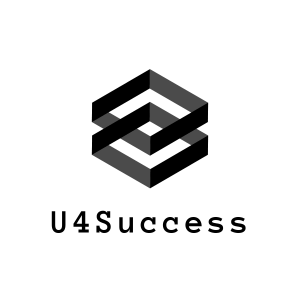
TOK Essay Titles May 2023
Tok essay titles may 2023: what they mean and essay examples.
TOK and TOK Essay a Definitive Guide Series: Part 5
TOK and TOK Essay: a Definitive Guide Series Part 5
Welcome to our Theory of Knowledge (TOK) and TOK Essay a Definitive Guide Series! In this series of articles, you will learn everything there is to know about the IB TOK course, TOK exhibition, and writing a compelling TOK essay. So let’s get started!
In May 2023, International Baccalaureate (IB) Diploma Programme students were presented with a new set of Theory of Knowledge (TOK) Essay titles. These essay titles serve as the foundation for students to explore and analyze knowledge claims, and critically reflect on the nature of knowledge itself. The TOK Essay is an essential component of the IB Diploma Programme, requiring students to demonstrate their understanding of the ways of knowing and areas of knowledge, while engaging in philosophical and critical thinking. The May 2023 TOK Essay titles encompass a wide range of thought-provoking questions that challenge students to investigate various aspects of knowledge, truth, ethics, and the role of perception in shaping our understanding of the world. Let’s look into each May 2023 TOK Essay Title, explore what they mean and what to include in your essay.

May 2023 TOK Essay Titles
Is replicability necessary in the production of knowledge discuss with reference to two areas of knowledge., for artists and natural scientists, which is more important: what can be explained or what cannot be explained discuss with reference to the arts and the natural sciences..
- Does it matter if our acquisition of knowledge happens in “bubbles” where some information and voices are excluded? Discuss with reference to two areas of knowledge.
- Do you agree that it is “astonishing that so little knowledge can give us so much power” (Bertrand Russell)? Discuss with reference to the natural sciences and one other area of knowledge.
Are visual representations always helpful in the communication of knowledge? Discuss with reference to the human sciences and mathematics.
To what extent is the knowledge we produce determined by the methodologies we use discuss with reference to history and one other area of knowledge., understanding the title.
Title 1 of the May 2023 TOK essay prompts explores the concept of “replicability” and its role in assessing the quality of knowledge. It delves into the idea of reproducing knowledge in the same context consistently and questions whether replicability guarantees the validity of knowledge.
The essay examines the field of natural sciences and how replicating experiments often leads to credible results, instilling confidence in the reliability of knowledge. However, it also calls for an evaluation of whether reproducing knowledge in the same manner is essential for knowledge production.
Moreover, the essay considers whether replicability holds the same significance in other areas of knowledge. It explores how replicability can be distinguished from plagiarism, particularly in creative domains such as the arts. It ponders the possibility of replicating an artwork to produce identical pieces and how this affects the knowledge each replicated artwork generates.
Overall, the essay explores the role of replicability in different domains of knowledge and analyzes its implications for the quality and authenticity of knowledge.
Examples of the May 2023 TOK Title 1 Essay
Replicability, or the ability to reproduce results or findings through independent experiments or observations, plays a crucial role in the production of knowledge. It ensures that knowledge is reliable, verifiable, and can withstand scrutiny. In this response, I will discuss the significance of replicability in two areas of knowledge: scientific research and history.
Scientific Research:
In the field of scientific research, replicability is considered fundamental. It is essential for validating scientific claims and theories. When an experiment or study can be replicated by other researchers, it increases confidence in the reliability and accuracy of the findings. Replicability allows for the detection of errors, biases, or anomalies, as well as the potential identification of confounding variables or alternative explanations.
For example, in the field of medicine, drug trials undergo rigorous testing and replication to ensure that the results are consistent across different populations, settings, and timeframes. This replication process helps to establish the effectiveness and safety of a new treatment or drug. Replicability also enables the scientific community to build upon existing knowledge, refine theories, and make advancements in various disciplines.
While history is not a science in the strict sense, replicability still holds significance in historical research. In history, replicability manifests as the ability to verify and cross-reference information from multiple sources. Multiple accounts, primary sources, artifacts, and historical records are examined to corroborate events and narratives. Replicability allows historians to confirm the accuracy and authenticity of historical claims and interpretations.
For instance, when studying a specific historical event like World War II, historians rely on various sources such as diaries, letters, photographs, official documents, and testimonies. By cross-referencing these sources and replicating findings, historians can establish a more comprehensive and reliable understanding of the past. Replicability in historical research helps to mitigate biases, misinformation, and revisionism, ensuring a more accurate representation of historical events.
In both scientific research and historical analysis, replicability serves as a safeguard against biases, errors, and misinterpretations. It enhances the credibility and robustness of knowledge production by subjecting claims and findings to independent scrutiny. Replicability fosters a culture of transparency, accountability, and collaboration within these areas of knowledge, ultimately contributing to the advancement of our understanding of the world.
Title 2 of the May 2023 TOK essay prompts presents a unique twist in its wording. Instead of asking for an explanation of which ideas can or cannot be explained, the essay calls for an evaluation of perspectives on the importance of two types of ideas: those that can be explained and those that cannot.
The essay examines the field of natural sciences, where there is vast potential for research. While natural science may not be able to prove all facts, it can theoretically describe them, highlighting the significance of ideas that can be explained within this domain.
On the other hand, in the realm of the arts, there are contextual artworks, such as historical art, that seek explanations based on evolving traditions. This implies that ideas which cannot be easily explained also hold importance in this creative field.
The essay task focuses on evaluating differing viewpoints regarding the relative importance of ideas that can be explained versus those that cannot be. It encourages an exploration of the value and significance of both types of ideas across different areas of knowledge.
In summary, the essay prompts the evaluation of perspectives on the importance of ideas that can be explained versus those that cannot, drawing examples from the natural sciences and the arts to illustrate the differing contexts in which these ideas hold relevance.
Examples of the May 2023 TOK Title 2 Essay
For artists and natural scientists, the importance of what can be explained versus what cannot be explained can vary based on the specific nature of their disciplines. Let’s examine this distinction in the context of the arts and the natural sciences.
In the realm of the arts, the exploration of what cannot be easily explained often takes precedence. Artists often delve into the subjective, emotional, and abstract aspects of human experience that elude simple explanations. They aim to evoke emotions, provoke thought, and engage the audience on a deeper level.
Artistic creations, such as paintings, sculptures, music, dance, and literature, often seek to express complex ideas, emotions, or perspectives that go beyond the limitations of language or rational comprehension. Artists often tap into their intuition, imagination, and creativity to communicate the ineffable aspects of the human condition. In this context, what cannot be easily explained holds great significance as it allows for the exploration of the mysterious, the ambiguous, and the sublime.
For example, abstract art, poetry, or avant-garde performances often embrace ambiguity and open interpretation. They encourage viewers or audiences to engage with the artwork personally and subjectively, allowing for a range of individual responses and meanings. The elusive and unexplained aspects of art contribute to its richness, diversity, and ability to provoke introspection and emotional resonance.
The Natural Sciences:
In contrast, the natural sciences primarily focus on understanding and explaining the natural world through empirical observations, data analysis, and the formulation of testable theories. In the natural sciences, the emphasis is on what can be explained based on evidence and logical reasoning. Scientists seek to uncover underlying patterns, mechanisms, and causal relationships through systematic investigation and experimentation.
While there are still many phenomena in the natural sciences that are not yet fully explained, the goal is to continually expand our knowledge and provide explanations based on observable evidence. Scientists strive for replicability and the ability to predict and control phenomena through established theories and models. They work towards uncovering the underlying laws and principles that govern the physical, biological, and chemical processes in the natural world.
For instance, in physics, the pursuit of understanding the fundamental laws of the universe and explaining natural phenomena, such as gravity, electromagnetism, and quantum mechanics, relies on developing comprehensive theories that provide explanatory frameworks . The focus is on identifying patterns, making accurate predictions, and providing explanatory power to phenomena.
In summary, for artists, what cannot be explained often takes precedence, allowing for exploration of subjective experiences, emotions, and abstract concepts. In contrast, for natural scientists, explaining phenomena based on empirical evidence and logical reasoning is of primary importance. Both perspectives contribute to our understanding of the world, but their priorities and approaches differ in terms of what they consider significant and valuable.
Does it matter if our acquisition of knowledge happens in “ bubbles ” where some information and voices are excluded? Discuss with reference to two areas of knowledge.
Title 3 of the May 2023 TOK essay prompts presents a fascinating concept of “knowledge bubbles,” referring to isolated environments where certain knowledge ideas persist without much variation or exploration.
In the realm of human sciences, the essay raises the question of whether these knowledge bubbles hinder our ability to take responsibility for exploring new knowledge. It explores how these bubbles can create limitations in our understanding of the world and hinder our progress in generating new ideas.
On one hand, in the natural sciences, knowledge tends to solidify over time, gaining certainty through long-held beliefs and established theories. However, this prompts questions about the importance of acquiring knowledge solely from within a known knowledge zone, where ideas align with the prevailing beliefs of that particular community.
Overall, the essay allows for a wide range of opinions and encourages exploration of the impact of knowledge bubbles on our pursuit of new knowledge. It challenges us to consider whether relying solely on established beliefs limits our ability to engage in critical thinking and explore alternative perspectives.
Examples of the May 2023 TOK Title 3 Essay
The matter of acquiring knowledge within “bubbles,” where certain information and voices are excluded, is a topic of great importance. It raises concerns about the potential limitations, biases, and distortions that can arise when our knowledge is confined to narrow perspectives or echo chambers. Let’s discuss this issue with reference to two areas of knowledge: social sciences and journalism.
Social Sciences:
In the field of social sciences, it is crucial to consider multiple perspectives and voices to gain a comprehensive understanding of human behavior, societies, and cultures. Excluding certain information or voices can result in a skewed and incomplete understanding of complex social phenomena.
For instance, in studying the effects of socioeconomic factors on educational attainment, it is essential to consider diverse perspectives from various socioeconomic backgrounds. Excluding certain voices can lead to an incomplete understanding of the challenges and barriers faced by different communities, potentially perpetuating social inequalities.
Furthermore, social sciences often rely on interdisciplinary approaches and collaborations, drawing insights from sociology, psychology, anthropology, economics, and more. By embracing diverse perspectives and voices, researchers can integrate multiple lenses and address complex issues more effectively.
Journalism:
In journalism, the exclusion of voices and information within “bubbles” poses significant challenges to the integrity and accuracy of news reporting. Journalists play a crucial role in informing the public and holding power to account. When information and voices are excluded, it can lead to biased reporting, misinformation, and a lack of critical analysis.
Diverse voices and perspectives are essential in journalism to provide a comprehensive and accurate portrayal of events and issues. Excluding certain voices can lead to narratives that are one-sided, lacking context, or distorted. It is important for journalists to actively seek out and include diverse sources to provide a more nuanced understanding of the world.
Moreover, journalism serves as a crucial tool for democracy, fostering informed citizenry and facilitating public discourse. When information and voices are excluded, it can hinder the ability of individuals to make informed decisions, contribute to public debates, and hold power accountable.
In summary, the exclusion of information and voices within “bubbles” can have detrimental effects on knowledge acquisition in various areas. In the social sciences, it can lead to incomplete understandings of complex social phenomena and perpetuate inequalities. In journalism, it can result in biased reporting, misinformation, and hinder public discourse. Embracing diverse perspectives and actively seeking out a range of voices is essential to promote a more comprehensive, accurate, and inclusive acquisition of knowledge.
Do you agree that it is “ astonishing that so little knowledge can give us so much power ” (Bertrand Russell)? Discuss with reference to the natural sciences and one other area of knowledge.
Title 4 of the May 2023 TOK essay prompts introduces a humorous aspect, reminiscent of the saying “little knowledge may be dangerous.” The question raises whether one is surprised by the observation that possessing limited knowledge can give individuals a sense of power or authority over that knowledge. It highlights the common phenomenon of individuals with little knowledge becoming trapped in an illusory web, overestimating their own understanding.
In the natural sciences, there can be instances where individuals overestimate their capabilities in asserting knowledge claims. This overconfidence can lead to erroneous conclusions or an inflated sense of expertise.
Similarly, in the human sciences, it is not uncommon for people to become overwhelmed and overrate their own abilities. They may possess a limited understanding of complex concepts and mistakenly believe they have a higher level of expertise than they actually do.
Overall, the essay prompts an examination of the tendency for individuals with limited knowledge to overestimate their command of that knowledge. It explores this phenomenon in both the natural and human sciences, emphasizing the potential dangers and pitfalls of overconfidence in one’s own understanding.
Examples of the May 2023 TOK Title 4 Essay
The statement by Bertrand Russell, “It is astonishing that so little knowledge can give us so much power,” highlights the transformative impact that even a limited understanding can have in certain areas of knowledge. Let’s explore this idea in the context of the natural sciences and technology.
Natural Sciences:
In the natural sciences, even a relatively small amount of knowledge can yield significant advancements and empower us to manipulate the natural world. Throughout history, breakthroughs in scientific understanding have led to remarkable technological innovations and applications.
For example, consider the field of physics. Newton’s laws of motion and universal gravitation, formulated with a relatively limited understanding of the natural world at the time, revolutionized our understanding of mechanics. These principles provided the foundation for the development of numerous technologies, including the construction of bridges, the design of vehicles, and the exploration of space. From the limited knowledge of the laws of motion, we gained the power to build complex structures, travel vast distances, and even send spacecraft beyond our planet.
Similarly, in the field of genetics, the discovery of the structure of DNA by Watson and Crick with their limited knowledge at the time unlocked an unprecedented understanding of the genetic code. This knowledge paved the way for advancements in genetic engineering, gene editing technologies like CRISPR, and the decoding of the human genome. From a limited understanding of the structure of DNA, we gained immense power to manipulate and modify genetic information, potentially revolutionizing fields such as medicine, agriculture, and biotechnology.
Technology:
In the realm of technology, it is astonishing how even a small amount of knowledge can empower us to create innovative tools and systems that have a profound impact on our lives. Advancements in computer science and information technology provide a compelling example.
With a relatively limited understanding of programming languages and computer architecture, we have harnessed the power of computers to transform various aspects of our lives. From simple algorithms and binary logic, we have developed complex software systems, artificial intelligence, and communication networks that enable instant global connectivity. The knowledge required to build these systems may be relatively small compared to the vastness of the universe, but it has given us the power to automate tasks, access vast amounts of information, and revolutionize fields such as healthcare, finance, and entertainment.
However, it is important to note that with great power also comes great responsibility. The potential consequences of wielding such power require ethical considerations and responsible use to ensure that the benefits of knowledge are harnessed for the betterment of society.
In conclusion, the quote by Bertrand Russell captures the idea that even a modest amount of knowledge can yield significant power in certain areas of knowledge, such as the natural sciences and technology. From these limited understandings, we have gained the ability to transform the world around us, develop groundbreaking technologies, and shape the course of human civilization.
Title 5 of the May 2023 TOK essay prompts is likely to be intriguing for visual learners as they may feel a strong personal connection to it. The key word in the title is “always,” which implies that knowledge is consistently produced and received in a unidirectional manner. However, communication itself is a bidirectional concept.
The essay offers an opportunity to delve into areas where statistical data serves a different purpose in its production compared to its interpretation. It raises questions about the reliability of such data, particularly in predictive analysis. The focus is on understanding the distinction between the production of statistical data and the subsequent interpretation of that data, highlighting potential discrepancies and challenges.
Visual learners may particularly resonate with this topic as they can explore the visual representation of data and how it influences the communication and interpretation of knowledge. It encourages an examination of the complexities involved in the production, communication, and interpretation of statistical data.
In summary, the essay title emphasizes the unidirectional nature of knowledge production and reception, while highlighting the bidirectional nature of communication. It prompts an investigation into the different purposes of producing and interpreting statistical data, raising questions about reliability and the role of visual representation in knowledge communication.
Examples of the May 2023 TOK Title 5 Essay
Visual representations can be highly effective in the communication of knowledge in various fields, including the human sciences and mathematics. However, their usefulness may vary depending on the context and the specific nature of the knowledge being conveyed. Let’s explore this topic in relation to the human sciences and mathematics.
Human Sciences:
In the human sciences, which encompass disciplines such as psychology, sociology, anthropology, and linguistics, visual representations can play a valuable role in enhancing understanding and communication.
Visual representations, such as charts, graphs, diagrams, and maps, can help convey complex data, patterns, and relationships in a concise and accessible manner. For instance, in sociology, a graph or chart can visually represent statistical data on social trends or demographic patterns, making it easier to analyze and interpret the information.
Furthermore, visual representations can be particularly helpful in presenting qualitative data. In anthropology, for example, photographs, videos, or illustrations can provide visual documentation of cultural practices, artifacts, or archaeological sites, aiding in the understanding of cultural diversity and historical contexts.
However, it is important to note that visual representations in the human sciences should be used thoughtfully and critically. They should be accompanied by appropriate contextual information and explanations to ensure accurate interpretation. Visuals can simplify complex phenomena, but they may also oversimplify or distort information if not properly contextualized.
Mathematics:
Visual representations are widely used and highly beneficial in the field of mathematics. They often serve as powerful tools for conceptual understanding, problem-solving, and communication of mathematical ideas.
Diagrams, graphs, and geometric figures are frequently employed to illustrate mathematical concepts, relationships, and proofs. Visual representations in mathematics can help students and researchers visualize abstract ideas, observe patterns, and make connections between different mathematical principles.
For example, in geometry, visualizing geometric shapes and their transformations through diagrams can aid in understanding properties, congruence, and symmetry. Graphs and charts are extensively used in representing numerical data, functions, and mathematical models, enabling a visual understanding of trends, variations, and mathematical relationships.
However, it is worth noting that while visual representations are valuable in mathematics, they are not a substitute for rigorous mathematical reasoning and proof. Visuals can provide intuitive insights and aid in conceptual understanding, but formal mathematical proofs often require precise logical arguments and symbolic representations.
In summary, visual representations can be highly beneficial in the communication of knowledge in both the human sciences and mathematics. They can help simplify complex information, convey patterns and relationships, and enhance understanding. However, it is important to use visuals critically and in conjunction with appropriate context, explanations, and rigorous reasoning to ensure accurate interpretation and avoid oversimplification or distortion of knowledge.
Title 6 of the May 2023 TOK essay prompts brings to mind the methods and tools used within the TOK knowledge framework. The essay focuses on the extent to which observations collected and evaluated through methodologies impact the nature of newly produced knowledge.
The central question revolves around the influence of different methodologies on the production of new knowledge. It explores whether the appropriateness of research methodologies affects the accuracy and reliability of the knowledge that is generated. This invites reflection on the role of methodologies in shaping the outcomes of knowledge production.
In the context of history, the essay acknowledges the presence of evidence from primary resources, which plays a crucial role in interpreting the past. This highlights how different research methodologies can lead to varying interpretations and understandings of historical events and phenomena.
Similarly, the essay recognizes the significance of empiricism in the natural sciences. It prompts an investigation into the nature of knowledge produced in this field through the use of empirical methods, emphasizing the importance of observation and experimentation.
Overall, the essay encourages an exploration of the impact of methodologies on the nature and accuracy of knowledge production. It calls for a critical examination of how different research methods shape our understanding of historical events and scientific phenomena.
Examples of the May 2023 TOK Title 6 Essay
The methodologies we employ in the production of knowledge significantly influence the nature, scope, and reliability of the knowledge we generate. Different methodologies shape the way information is gathered, analyzed, and interpreted, ultimately shaping the conclusions and insights we arrive at. Let’s examine the extent to which methodologies influence knowledge production in the context of history and natural sciences.
In the field of history, methodologies play a crucial role in shaping the knowledge we produce. Historians rely on various methodologies to examine and interpret past events, individuals, and societies. The choice of methodology can significantly impact the narrative and understanding of historical phenomena.
For instance, the use of archival research and primary sources is a fundamental methodology in history. By analyzing letters, diaries, official documents, and other firsthand accounts, historians gain insights into the perspectives, motivations, and actions of historical actors. The selection and interpretation of these primary sources can shape the historical narrative and influence the conclusions drawn.
Another example is the impact of historiographical methodologies. Different historiographical approaches, such as social history, cultural history, or Marxist historiography, emphasize different aspects of historical analysis and interpretation. These methodologies influence the questions asked, the sources examined, and the theories employed, thereby shaping the knowledge produced.
The methodology of historical research also includes critical analysis, source criticism, and triangulation of evidence. These methodologies help historians evaluate the reliability and biases of sources, ensuring a more rigorous and accurate understanding of the past.
In the natural sciences, methodologies strongly influence the knowledge we produce by providing frameworks for experimentation, observation, and analysis. Scientific methodologies aim to ensure objectivity, reproducibility, and reliability in the acquisition of knowledge.
For example, the scientific method, a foundational methodology in the natural sciences, involves making observations, formulating hypotheses, conducting experiments, and analyzing data. This systematic approach helps scientists test and refine theories, establish causal relationships, and draw reliable conclusions. The scientific method provides a framework that promotes transparency, accountability, and the accumulation of knowledge through peer review and replication.
Furthermore, specific methodologies within different scientific disciplines shape the nature of knowledge produced. For instance, in molecular biology, methodologies such as DNA sequencing, protein crystallography, and microscopy enable scientists to study and understand the structure and function of biological molecules. These methodologies generate detailed and precise knowledge about the molecular mechanisms of life.
It is important to note that while methodologies in the natural sciences provide a systematic approach to knowledge production, they are not entirely deterministic. Scientific creativity, intuition, and the ability to ask insightful questions also influence the direction and breakthroughs in scientific knowledge.
In summary, methodologies significantly shape the knowledge produced in both history and the natural sciences. They guide the gathering, analysis, and interpretation of evidence, influencing the narratives, theories, and conclusions drawn. Understanding and critically evaluating the methodologies employed is essential for a robust and comprehensive understanding of the knowledge generated in these areas.
Please Note
It is improtant to note that the above provided essay examples are only meant to give an idea of what to include in your essay and not to show you how to write a good TOK essay. These texts are rather superficial without personal life examples, opinions or personal reflections. That is why, if you are looking for examples of a 7/7 TOK essay, check out other sources or our comprehensive guide to writing a successful TOK Essay .
Engaging in the TOK Essay not only allows students to demonstrate their academic prowess but also empowers them to become active seekers of knowledge. By delving into the essay titles and engaging with TOK concepts, students can cultivate a deeper awareness of the biases, assumptions, and limitations that influence our understanding of the world. They can challenge preconceived notions, explore the ethical implications of knowledge claims, and unravel the complexities of truth and certainty.
Furthermore, embracing the full potential of TOK within the school environment can bring immense benefits. Students who actively participate in TOK classes and seize the opportunity to write the TOK Essay can develop essential skills that extend far beyond the boundaries of their academic journey. These skills, such as critical thinking, open-mindedness, and the ability to evaluate and analyze information, will serve them well in their future pursuits, be it in higher education, careers, or personal growth.
Therefore, I encourage all students to embrace the May 2023 TOK Essay titles and approach them with curiosity and enthusiasm. Take advantage of the unique chance to delve into the world of TOK, to challenge assumptions, to question prevailing narratives, and to construct well-reasoned arguments. Engaging in TOK fosters a lifelong love for learning, equipping students with the tools to navigate the complexities of knowledge and empowering them to become informed, responsible, and thoughtful global citizens. So, seize the opportunity, embark on this intellectual adventure, and let TOK inspire you to expand the boundaries of your understanding.
Frequently asked questions (FAQs)
What is the purpose of the TOK Essay titles?
The TOK Essay titles for May 2023 serve as prompts for students to critically analyze and explore knowledge claims within specific contexts. They encourage students to engage with philosophical questions and apply TOK concepts to develop their understanding of the nature of knowledge.
How are the TOK Essay titles selected?
The TOK Essay titles are carefully crafted by a panel of IB experts and educators. They aim to cover a wide range of themes and concepts related to knowledge, incorporating various areas of knowledge and ways of knowing.
Can students choose any title to write their TOK Essay?
No, students are required to choose one essay title from the given list of titles. They must carefully consider each title, evaluate their level of understanding and interest, and select the one that aligns best with their knowledge and experiences.
Can students use real-life examples in their TOK Essays?
Yes, incorporating real-life examples is highly encouraged in TOK Essays. These examples help to ground abstract concepts in concrete situations, enhancing the students’ analysis and application of TOK principles.
How should students approach the TOK Essay titles?
Students should approach the TOK Essay titles by first thoroughly understanding the key terms and concepts within the chosen title. They should critically analyze the question, consider multiple perspectives, and explore various knowledge claims. It is essential to use TOK-specific terminology, engage in critical thinking, and present a well-structured argument supported by evidence and examples.

About the Author
Anzhelika is a PhD candidate in Genetics and a marketing consultant at U4Success from Vienna, Austria. She leads our website and social media content strategy.
Share this:
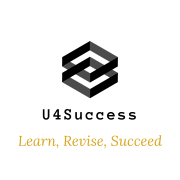
Our Policies
- Terms of Service
- Terms and Conditions
- Cookie Policy (EU)
- Privacy Policy

Discover more from U4Success | IB tutoring
Subscribe now to keep reading and get access to the full archive.
Type your email…
Continue reading
May 2023 TOK essay prescribed titles
The prescribed titles for the May 2023 TOK essay have been released. Check with your TOK coordinator / teacher for the official document.
Resources for the May 2023 TOK essay prescribed titles will be published shortly.
- Is replicability necessary in the production of knowledge? Discuss with reference to two areas of knowledge.
- For artists and natural scientists, which is more important: what can be explained or what cannot be explained? Discuss with reference to the arts and the natural sciences.
- Does it matter if our acquisition of knowledge happens in “bubbles” where some information and voices are excluded? Discuss with reference to two areas of knowledge.
- Do you agree that it is “astonishing that so little knowledge can give us so much power” (Bertrand Russell)? Discuss with reference to the natural sciences and one other area of knowledge.
- Are visual representations always helpful in the communication of knowledge? Discuss with reference to the human sciences and mathematics.
- To what extent is the knowledge we produce determined by the methodologies we use? Discuss with reference to history and one other area of knowledge.
Privacy Overview
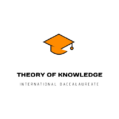
[email protected]
+919878797000.
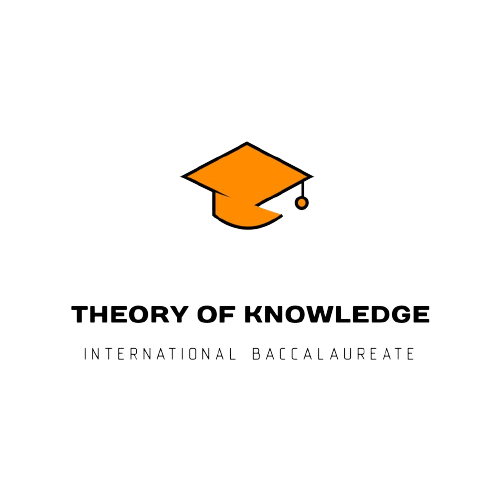
THEORY OF KNOWLEDGE 2023
A comprehensive guide.

THEORY OF KNOWLEDGE
Tok curriculum.
Discover the TOK curriculum and its components, including knowledge questions, areas of knowledge, and ways of knowing.
TOK Essay Tips
Learn essential tips and techniques for writing an impressive TOK essay that effectively addresses knowledge issues and receives high marks.
TOK Presentation
Get guidance on how to deliver an engaging TOK presentation that effectively communicates.
TOK Resources
Resources to explore TOK concepts and expand your knowledge: books, articles, and websites.
Lorem Porem
Lorem porem ipsum, 25 years of experience.
Successfully Project Finished.
Years of experience with proud
Colleagues & counting more daily
TOK ESSAY TITLES 2024
Tok essay title 1 may 2024.
Is subjectivity overly celebrated in the arts but unfairly condemned in history? Discuss with reference to the arts and history.
TOK ESSAY TITLE 2 MAY 2024
How can we reconcile the opposing demands for specialization and generalization in the production of knowledge? Discuss with reference to mathematics and one other area of knowledge.
TOK ESSAY TITLE 3 MAY 2024
Nothing is more exciting than fresh ideas, so why are areas of knowledge often so slow to adopt them? Discuss with reference to the human sciences and one other area of knowledge.
TOK ESSAY TITLE 4 MAY 2024
Do we underestimate the challenges of taking knowledge out of its original context and transferring it to a different context? Discuss with reference to two areas of knowledge.
TOK ESSAY TITLE 5 MAY 2024
Do we need custodians of knowledge? Discuss with reference to two areas of knowledge.
TOK ESSAY TITLE 6 MAY 2024
Are we too quick to assume that the most recent evidence is inevitably the strongest? Discuss with reference to the natural sciences and one other area of knowledge.
Choose from three different TOK course structures
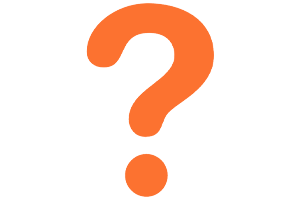
Big Question Framework
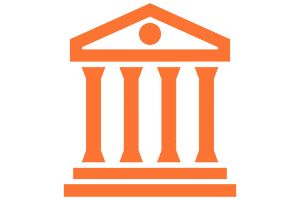
Classic TOK Lessons
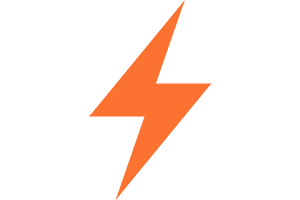
Disruptive Ideas
Take advantage of three classroom-ready courses for TOK, exclusively available to faculty members. Each course provides meticulously designed and structured lessons, supported by clear and measurable learning objectives. Packed with media-rich resources and inspired by current real-world situations and ideas, these courses will save you considerable time. Begin downloading and delivering them now.
Apply TOK ideas and concepts to the real world
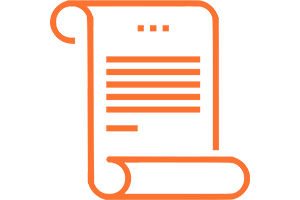
Monthly Newsletter
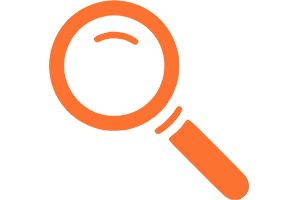
Investigating Issues
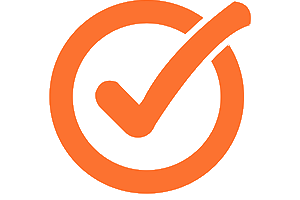
12 Key TOK Concepts
Our resources aim to assist students in exploring and comprehending the most significant current events while understanding how TOK concepts manifest in the real world. Our exclusive monthly TOK newsletter, Investigating Issues, along with the 12 Key Concepts, will aid you and your entire DP faculty in developing critical thinking skills and connecting learning to news issues, debates, and controversies. Subscribe to our complimentary newsletter here to stay updated.
Master the TOK assessment tasks
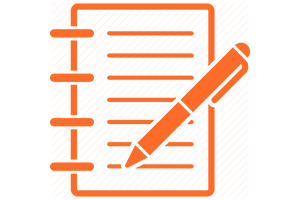
TOK Essay Support Pack
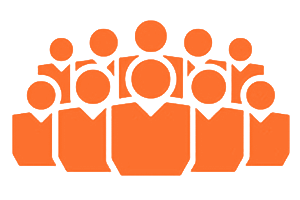
Exhibition Support Pack
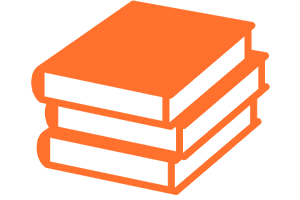
TOK Assessment Lessons
Our assessment packs, available in both English and Spanish, are specifically designed for student use. They provide a clear understanding of the assessment criteria for the TOK essay and exhibition, assisting students in creating exceptional final assessment products. With the TOK assessment lessons, teachers can effectively target and enhance the necessary skills, enabling students to approach the assessment tasks with confidence and achieve success.

Get your whole DP faculty onboard
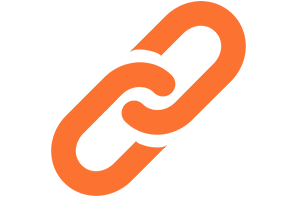
DP Integration Tool
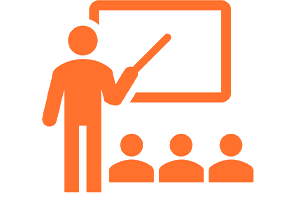
TOK Mini Lessons
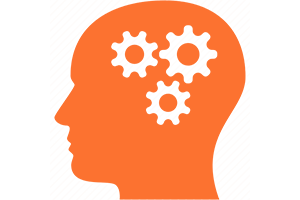
Knowledge Heros
What distinguishes us from other sites and textbooks for TOK is our commitment to catering to ALL faculty members. Our resources are designed with this in mind. The Integration Tool facilitates seamless connections between subjects and TOK concepts, while incorporating real-world events. Mini-lessons offer concise and ready-to-use classroom materials, and Knowledge Heroes empower teachers to draw inspiration from influential figures across various academic disciplines.
Prepare your pre-DP students for TOK
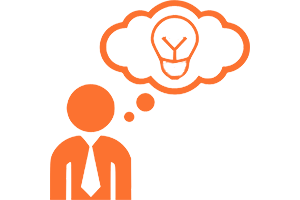
Thinking for Yourself
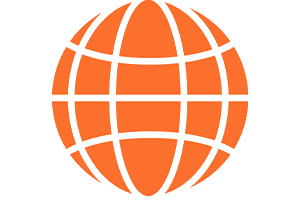
Middle Year Newsletter
We provide two pre-DP courses, namely “Thinking for Yourself” and “Worldviews,” which aim to foster critical thinking, stimulate debates, and introduce students to the concepts they will encounter in TOK. Additionally, our middle years newsletter assists students in going beyond surface-level understanding by encouraging them to delve deeper into the latest events and real-world issues.
Get trained-up for TOK

Our training programs in TOK and critical thinking are tailored to meet the needs of both specialized teachers and regular faculty members. We have collaborated with schools worldwide, assisting them in incorporating engaging, relevant, and effective TOK and critical thinking practices throughout their curriculum. Additionally, we provide free and premium webinars on TOK, along with a comprehensive collection of videos available on our YouTube channel for you to explore.
Explore the course

The Core Theme
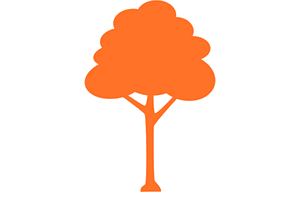
Optional Theme
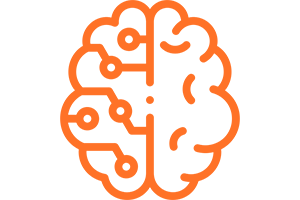
Areas of Knowledge
Explore our extensive range of free course materials covering every aspect of the TOK course. Delve into the core theme, “knowledge & the knower,” as well as the optional themes like indigenous societies, language, politics, religion, and technology. Additionally, explore the various areas of knowledge such as the arts, history, human sciences, mathematics, and natural sciences. As a faculty member of our site, you’ll have exclusive access to our exploration point documents, providing in-depth insights into each component of TOK.
Download free samples
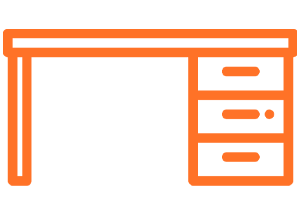
Classroom Ready TOK Lessons
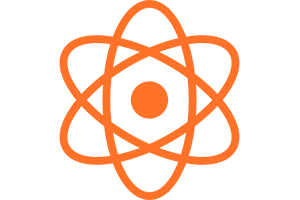
TOK World Resources
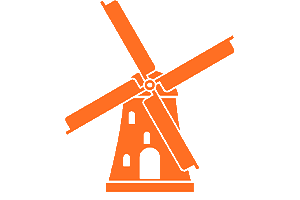
Real World Resources
Gain access to a wide array of free sample materials that showcase our approach and the type of resources available to site members for delivering the TOK course. Explore our comprehensive selection of classroom-ready lessons, organized into three distinct courses. Take a look at our TOK-world resources, designed to empower students to take ownership of their TOK journey. Additionally, discover how our real-world resources establish meaningful connections between learning and current events and issues. Download these samples to get a firsthand experience of our offerings.
Testimonials
Rahul kapoor.
Studying TOK has been an enlightening journey. It has challenged my perspectives, sharpened my critical thinking skills, and expanded my understanding of knowledge. I highly recommend this course to all IB students.
United States
Emily johnson.
TOK has been an incredibly thought-provoking course for me. It has pushed me to question everything and explore different ways of knowing. This course has truly transformed the way I approach learning and understanding the world.
María Santos
Studying TOK has opened my mind to the diverse ways in which knowledge is constructed and evaluated. It has challenged my preconceived notions and deepened my appreciation for the complexity of knowledge.
Ishita Sharma
TOK has made me realise the power of questioning and the importance of having an open mind. It has encouraged me to explore different viewpoints and engage in meaningful discussions.
Request a Callback?
Learn more from, frequently asked questions.
Theory of Knowledge (TOK) is an interdisciplinary course offered as part of the International Baccalaureate (IB) Diploma Programme. It delves into the nature of knowledge, how it is acquired, and the ways in which it is justified. TOK fosters critical thinking, reflection, and exploration of different ways of knowing and areas of knowledge.
TOK offers invaluable skills for intellectual and personal growth. It enhances critical thinking, nurtures an appreciation for diverse perspectives, and encourages curiosity. By engaging with TOK, students develop abilities that are highly beneficial for higher education, such as analyzing arguments, evaluating evidence, and constructing well-reasoned viewpoints.
TOK is assessed through an externally moderated essay and an oral presentation. The TOK essay requires students to critically analyze a prescribed title or develop a self-chosen title related to TOK. The oral presentation provides an opportunity for students to explore a real-life situation from a TOK perspective and engage in a thoughtful discussion.
TOK equips students with critical thinking skills that can be applied to everyday life. It enables individuals to navigate complex issues, evaluate sources of information, and make informed decisions. The skills and perspectives cultivated in TOK are highly transferable, benefiting students in university studies, career paths, and active engagement with the world.
Absolutely! TOK emphasizes the importance of effective communication in conveying ideas and arguments. It encourages students to express themselves clearly, develop coherent arguments, and support them with evidence. Through the oral presentation component and essay writing, TOK hones students’ communication skills, enabling them to articulate their thoughts with precision and clarity.
EXPLAINED: May 2024 TOK Essay Prescribed Titles
What happened to this post? HackIB has been acquired by MyIBTutor . All content is now available on the MyIBTutor Blog with more exciting IB content to come! Click here to see it for yourself!
Looking for November 2024 Session TOK Essay titles? Click here.
TOK Essay Titles – May 2024 Examination Session
The titles for May 2024 are released! Here they are below:
Make sure to bookmark this page as I explain and provide examples for each of these titles in depth! UPDATE: Title 1, 2, 5 and 6 are now available. Stay tuned for more! For general guidance on how to write a good TOK essay, check out my TOK Essay advice collection .
Is subjectivity overly celebrated in the arts but unfairly condemned in history? Discuss with reference to the arts and history.
How can we reconcile the opposing demands for specialization and generalization in the production of knowledge? Discuss with reference to mathematics and one other area of knowledge.
Nothing is more exciting than fresh ideas, so why are areas of knowledge often so slow to adopt them? Discuss with reference to the human sciences and one other area of knowledge.
Do we underestimate the challenges of taking knowledge out of its original context and transferring it to a different context? Discuss with reference to two areas of knowledge.
Do we need custodians of knowledge? Discuss with reference to two areas of knowledge.
Are we too quick to assume that the most recent evidence is inevitably the strongest? Discuss with reference to the natural sciences and one other area of knowledge.
This title attempts to challenge students on the main school of thought that you learn over the TOK course. The gist of your TOK teaching on both of these AOKs probably boiled down to something like: everything is art and it’s just whatever the artist wants to create, while history is always biased because the winners always write all of history. However, this eliminates much of the nuance in each of these AOKs that are worth exploring. That’s what makes this prompt interesting.
Is subjectivity overly celebrated in the arts? I will be honest, I never thought we really ‘celebrated’ subjectivity. It just, was. Inherently, art is a subjective exercise – you can think about this point a little further. You will find some heated discussion on whether art is subjective or could it be objective on the internet and I won’t delve into that here, because it isn’t the point of this title. The key here is to focus on the EXTENT of subjectivity and is it to the detriment of the area of knowledge itself. Then, we have to consider, whose subjectivity are we talking about: is it the artist’s subjectivity, or the audience’s subjectivity. For example, the Mona Lisa wasn’t that well known when it was first painted. I’m sure the Da Vinci thought it was quite a nice piece, but it seems like we didn’t really celebrate his subjectivity. It wasn’t until a certain audience found it subjectively good, that we accepted it as one of the greatest pieces of art in the world! That is an example of how subjectivity is relevant in the dissemination of artistic knowledge. For a more modern example, what about your favourite YouTuber? Do they truly make what they want? NO! They are often beholden to sponsors, and you – the audience! What you want to see, is what they will make! So it is YOUR subjectivity that drives their decision to produce art, not necessarily purely their subjectivity. Subjectivity by definition is just a person’s opinions, emotions, thoughts. This connects well with the TOK concept of values. What VALUES and WHOSE values are determining what art is created (in a variety of contexts), how art is perceived, and how art changes in its reception over time? These are all good questions to ponder. For more unconventional examples about art, think about how museums choose what art to display, what constitutes good art for prizes like the Nobel Prize for Literature, or why some art is considered more expensive than others? Are there systematic ways to think about our subjectivity and how we apply it to art? Is it really overly celebrating subjectivity or simply a necessity to make sense of the abundance of artistic knowledge in a sea of information today?
History gets a bad rep in the TOK classroom. Students like to trash on History calling it biased and unreliable. In this prompt, I don’t want you to refute these claims, but just think about how they aren’t necessarily catastrophic as we might think. We aren’t denying that biases in history could be problematic. I would be suspicious too, if the only accounts of the Rohingya Genocide came from the Myanmar military. However, the word condemned in the title suggests that we might be too harsh on historians when they get things wrong. We should focus on how the historical method recovers itself from failures in biases from its sources. Yes, it might be biased, but is it better than no history? Furthermore, does subjectivity actually ADD value to the way we produce, and interpret historical knowledge? While I’m sure a completely objective, news story like report of what happened in 1886 would be a historian’s dream, that isn’t the case! No matter how objective we try to be, we colour the events we experience by our own opinions, feelings and emotions. But isn’t that history in itself? In an almost cliched way, history’s subjectivity tells us more about what happened in the past and their beliefs and values more than words could ever say.
In both the historical and artistic discussions, you should focus more on the methodologies of these AOKs and how they achieve their AOK’s purpose. Subjectivity manifests in different ways in these AOKs and their methodology reflects that. In the overt awareness of subjectivity in the Arts, its method to produce knowledge is characteristically defined by subjectivity. In History, the method is to identify the covert influences of subjectivity, then to produce the most truthful knowledge possible. You can see that the goals of these two are different, and hence they deal with subjectivity differently. Don’t fall in the trap of focusing your discussion too much on your examples, but generalise to the patterns of how subjectivity manifest in your AOKs and whether their treatment of it is problematic.
It is crucial, when writing the essay for this prompt, to clearly define in your introduction what specialisation and generalisation means. DO NOT use the dictionary definitions here – since this is a TOK Essay, you want to make a TOK version of specialisation and generalisation, in terms of how these two things differ in the production of knowledge. Clearly defining the two in this way will form a solid foundation for you to have a nuanced discussion on this process of reconciliation between the two. The prompt hints at the competing demands on knowledge of specialisation and generalisation – i.e. you might not be able to produce knowledge in the same way if you were aiming for specialisation versus generalisation. So, this provides a point of contrast for you to choose examples and frame your discussion. Remember, the idea of competing demands is an ASSUMPTION, not an argument posed by the question. You should focus on how your chosen examples demonstrate a way to balance the interests of both and reach a ‘middle-ground’ rather than arguing that specialisation or generalisation are compatible with each other. TLDR: Don’t challenge the assumption.
For the first AOK of Mathematics, you should have encountered many personal examples just from your study of IB Maths. Most of your learning has been on generalisation, and the application of such generalisations. For instance, you learn about Calculus, a general topic within Mathematics, and then apply it in various contexts. Mathematicians love generalisations – that Calculus you learned? Well, the definition of a derivative generalised for all functions could be summarised by the first principles of derivatives function that HL AA students learn. You would have less interaction with specialisation of Mathematical knowledge. In a broader sense, the specific components of mathematics, cannot be separated from the general. You can’t solve calculus problems without the fundamental theorem of calculus. However, you could argue that the fundamental theorem of calculus didn’t need calculus problems to exist. Thus, an interesting dilemma arises in Mathematics – the generalisation could be produced, without a particular need for specialisation, but specialisation often calls for generalisation to first exist.
Looking at the latest mathematics research, you will find that applied mathematics is most common. Rarely do you see people get excited by new discoveries of solutions to elliptical curves, but more do when you tell them a new mathematical model to improve our prediction of the weather. We may place greater value on specialisation of knowledge, because we could see its usefulness more immediately, but, the Area of Knowledge does not require such specialisation to produce knowledge. So, do we encourage people to produce knowledge with the goal of specialisation in mind, or do we tell them to produce whatever theoretical generalised mathematical knowledge they can? Look to how mathematics is applied to Quantitative Finance, Econometrics, and Actuarial Science. They specialise mathematical knowledge and provide for some of the most lucrative careers. Does that speak to our preference and demand for specialised knowledge? But then again, what of the interdependence between generalisation and specialisation? How do we balance the two and how does the methodologies of the AOK contribute to this balancing act?
For the second, complimentary AOK, you could have discussions with all of the AOKs. For the Sciences, you could present a similar argument about needing to have some general theories before you could specialise. The scientific method is essentially one big generalisation process – you take specific observations and you make inferences so that you can generalise about some natural process. However, the knowledge that produces need not be general, it can still be specific. If we take specialisation as the goal, then we could pose narrow hypotheses to test. If we take generalisation as the goal, then we might need multiple of these narrow hypotheses to form a full picture, testing each individual case. Thus, specialisation could lead to specialisation alone, but more often, generalisation is the result of many specialisations.
One last question you might want to consider and attempt to answer in your essay is, do you want to know something about everything or everything about something? The answer to that will depend on your AOK. While we want to know about everything on everything, that is simply not reality. So, what trade offs do we make in each AOK, and how does each AOK decide on what we need to know more on?
You might be able to appreciate how long it takes ideas to actually be implemented in reality by looking at the recent Nobel Prize winners for Economic Sciences. The winner of the 2017 prize was Richard H. Thaler, for his contributions to behavioural economics. He explored the impacts of limited rationality, social preferences and the lack of individual self-control on economic decision making on an individual and market level. He started these findings from the 1980s, but it is only recently, in the 2022 revision of the IB syllabus that Economics students learn about the field of Behavioural economics in any detail! So why is it so?
To some extent, it is hard to criticise things for moving slowly. After all, new discoveries like behavioural economics represents a fundamental paradigm shift towards the way research is conducted in the particular AOK. Often times, fresh ideas are left to “ferment” so that their truthfulness can be tested with time. Nothing is more embarrassing than going down a rabbit hole only to find that your assumptions turned out to be monumentally incorrect. Even if we are making a big shift in light of new ideas towards the way we produce knowledge, doing so takes time! For many years and still now, we rely on strong assumptions of rationality to make economic models function. While the psychology of such behaviours are well researched, applying them to an Economic setting may not be. That is to say, it is important to consider how these new ideas arise, and what effect it has on existing knowledge, and the way we produce future knowledge. New ideas is simply new knowledge, but with the added implication that it has some effect on the existing knowledge within an AOK. It could potentially change how we view current knowledge, or how we conduct research given a particular discovery.
In the AOK of the human sciences, which broadly follows the scientific method, you could drawn some inspiration from the philosopher Thomas Kuhn’s view of scientific progress. He argues that within a period of “normal science” where we make incremental progress under the assumption of an overarching model, but there comes a point where we notice accumulation of imperfections with such a model that leads to new paradigms – new ideas, that fundamentally change how we do science. Then we undergo a sort of scientific revolution, where there are debates and decisions made over what sort of model we need to follow, until everyone eventually accepts the new paradigm and returns to a normal science period so that continual small improvements are made to knowledge, until another paradigm shift happens again. While you are not expected to demonstrate such strong philosophy knowledge within the TOK Essay, it is helpful to consider how each AOK handles such ‘revolutions’. For instance, it is harder to irrefutably find falsities in human sciences given the difficulty in replicability and corroborative studies compared to natural sciences.
As for complimentary AOKs, any would suit here, as each AOK has a very different way to handle new ideas. Many factors influence the way new ideas is accepted. For this title, we need to take the assumption that their acceptance is slow, not argue with it. Instead, you should consider what factors influence this slowness, and how different AOKs have different factors in mind when deciding how to accept new ideas. This relates to the nature of the AOK (what is its purpose) and the methodology guiding knowledge production in them.
Have you ever said something that sounds very weird out of context? That might have just been something silly with no real consequences, but in the realm of knowledge, we need to be careful about the consequences of knowledge taken out of their original context. This article highlights how the context of medical treatment matters a lot! As you can imagine, something that works in one field, doesn’t always apply in a straightforward manner to another. This is why there are whole research teams dedicated to what we call “translational research”. That is, trying to “translate” what you get from something like a lab setting, into actual products, like life-saving medications.
The obvious links to AOKs here are the Natural and Human Sciences. For Natural Sciences, we often start off knowledge production in a lab setting, or in a controlled environment. However, the application of such knowledge is rarely as controlled! So an interesting point to consider is how natural scientists have to account for the fact that their findings won’t ever be used in as perfect a setting as their research. Sure, you might have developed bullet proof wood , but how is that going to work in practically when it comes to mass manufacturing it for the army or the police? This is one of the biggest challenges that natural scientists face. It’s not that we aren’t trying to produce exciting knowledge, but that the application of such knowledge in a practical and appreciable context is often very difficult. Something like the mRNA technology (which recently was awarded a Nobel) took a long time to be developed into actual vaccines. The question then is, do we underestimate this process? Often it depends on the goal of the scientist. If the knowledge producer set out with an idea to commercialise in mind, then they would often consider the practical implications of findings. However, people studying theoretical physics for example, would struggle to immediately find very accessible real life implications. That doesn’t mean the knowledge is worthless, but certainly, the challenges are there.
What about non-scientific disciplines? Recently, I went to an art exhibition that trend Van Gough’s paintings into a 3D digital display. There was a Banksy exhibition that took the original murals he painted on the street, into this museum environment. Does changing the context of how art work is shown, and the manipulation of artistic knowledge change its meaning? What is the goal of transforming art into a different context? There are many reasons. Sometimes, it is to create satire (have a look at the parodies of the Mona Lisa), bringing old art onto a new audience (like VR exhibitions of Da Vinci), or simply making it more accessible to people (by making art works digitally available). The producers of these adapted forms of knowledge take great care in considering how this impacts the meaning of the art in its changed form. When artwork is so subjective, the context of art is often required to understand the artist’s meaning and intention, to ‘interpret’ works accordingly. At the same time, as we know art is quite subjective, is a ‘correct interpretation’ always required? If we are to remain artistic purists, then many of the joys of art could be lost! Imagine if you were admonished for listening to Taylor Swift through Spotify on your AirPods because it isn’t the original uncompressed music file with all the details, and you aren’t listening to it on the exact set of thousand dollar speakers it was created with? It would be ludicrous to assume that artistic knowledge is always going to be disseminated in the same context. Thus, this must be a consideration of artists. Is this consideration more or less difficult for different types of art? How is this consideration different to science considering there is no ‘right’ answer to interpreting art?
When thinking about this title, we aren’t arguing whether it is difficult. I think we all agree it is. However, it is about whether we underestimate just how difficult it is! Center your focus on how each AOK’s methodology highlights the consideration of being able to change contexts, and whether that affects the interpretation of the knowledge in question.
The term ‘custodians of knowledge’ is not something TOK students have likely heard of before, but this concept is relatively simple to understand. If you think positively about it, it could be protectors of knowledge, people who preserve knowledge, keeping it for generations to come – for example, some people might consider the Indigenous Peoples’ in Australia to be custodians of their unique cultural knowledge and what they call dreamtime stories. In this way, they keep culture alive, even if most people nowadays speak English and don’t readily tell their history. However, thought about negatively, it could also mean “gatekeepers’ (pardon the Gen Z language) of knowledge. The idealogical “protection” of knowledge could also be seen as a way to prevent some forms of knowledge from becoming knowledge in the first place. Talk to any university academic, and they will tell you how many times their research papers have been rejected. That’s why there is a bias towards statistically significant results, while research that showed that nothing significant has happened doesn’t often get published. Thus, these two contrasts provide for interesting discussion, particularly when considering how each AOK has different forms of custodians of knowledge and how they “gatekeep” or “protect” knowledge in different ways.
Take the AOK of the arts as an example. The career of artists are laughed upon because it is so hard to “break in” to the fine world of art. Many artists aren’t acclaimed until they are long dead. Perhaps most famously, the Mona Lisa wasn’t very well known until several hundred years after it was made. Thus, artists are often at the mercy of custodians of artistic knowledge like art curators and critics, who decide what merits acknowledgement as knowledge. After all, knowledge is only knowledge when there is consensus it is. And if the big wigs in the art industry doesn’t think it’s worth a mention, your art, however brilliant it seems to you, would not reach the consensus required to be considered knowledge. Of course, there are debates on the necessity of custodians in such a subjective AOK. After all, there were many times I questioned how some “artworks” even made it into the modern art museum when it’s literally splashes of paint on a canvas. I digress. However, there is something to be said about maintaining some form of standard to art. We judge whether some art is good or bad, but not in a very rigorous way. Custodians of knowledge supposedly have a framework to make such judgement in a way which preserves the nature of the AOK, and the knowledge within it. Therefore, discussion about the necessity of the custodians should focus on how they contribute to the purpose of the AOK, and whether it is compatible with the nature and methodologies of the AOK.
To further illustrate what I mean, you could see that Natural Sciences might present a stronger argument to the necessity of such custodians. We implicitly “trust” science, for better or for worse, because we know that there is a level of credibility imbued by the scientific method. It is the custodians’ role to maintain the standard of adherence to the scientific method that keeps this credibility alive. This is why, when flat earthers argue that they can’t see the curvature of the earth from the horizon, that it doesn’t get published in a scientific journal as fact! This is why, when research emerges that denies the existence of climate change, custodians have a responsibility to retract such research . However, at the same time, it also places much pressure on producers of such knowledge to create something worthy in the eyes of custodians. You might have heard of the data manipulation scandal that forced Stanford’s president to resign. Thus, custodians do appear quite important in this AOK, when we value the truthfulness of knowledge so much, but that isn’t without its consequences.
I recommend picking two contrasting AOKs that value much different things when writing the essay. While comparison is not a requirement for the essay, it gives you a more nuanced understanding of the question and thus a more reflective piece. For instance, we have just demonstrated that art is relatively subjective, while the sciences are less so. Thus, this influences the role which custodians need to play in each AOK.
The framework to answering this title for many students will follow a similar structure: an example of when novel evidence was accepted and had groundbreaking impacts, and another example where such evidence was problematic and disputed. Repeat this for the second AOK you choose and you’ll have 4 contrasting examples. This is not the only way to approach this title, but is my personal preference considering the structure I suggest to most students that ensures firstly, you will pass the basic criteria of a TOK Essay, and secondly, you will have a strong foundation to succeed. However, since everyone will have a similar style and collection of examples, it is even more important for this title, that you tease out the meaning and the effect on each area of knowledge, and knowledge in general, that your examples represent.
To demonstrate what I mean, let’s focus on two natural sciences examples. First, consider the case of “Cold Fusion”, a theory that you could supposedly have nuclear fusion at room temperature, discovered and subsequently debunked in 1989. A contrasting example, could be recent Nobel Prize winner of Medicine and Physiology, for the research on mRNA vaccines. Immediately, it is obvious that one shows where recent evidence isn’t the strongest, while the latter shows that it could be. But the focus should be on are we TOO QUICK in assuming so, not whether we should or not. Well, what are the reactions and timelines for each example? While Cold Fusion was met with excitement from the general public for the potential it holds for energy production, I wouldn’t say we ‘assumed’ it to be strong. Looking at the news reports from that time, you can see that there was great anticipation about the discovery, leading to lots of sudden funding and interest to investigate it and replicate it. As for mRNA, that discovery took a long time! First the technology, and the getting it to not appear foreign to the human body was very tricky. Even after it was discovered, we waited quite a while, with many people’s first experience with mRNA to be their COVID 19 vaccine. What you need to draw from these two examples is the methodological similarities and differences which reflect the NATURE of Science, and thus, the purpose of science. You see in both how there is an emphasis on replication which corroborates or falsifies, and only after doing so for a long time do we accept it to be true, otherwise it is debunked. So yes, there are moments where Natural Sciences provides strong compelling evidence that ends up false, there are many hurdles with in the methodology of the Natural Science that prevents us from being TOO QUICK to assume it to be true.
For this prompt, it is too easy to fall into the debate of why something was true or why something was false and tricked the population. This is not the point of the essay. You should avoid talking about the specifics of your examples at length. You need to demonstrate how your examples reflect the wider methodologies of the Natural Sciences (and similarly, for your second AOK) that either encourages or discourages our assumptions that novel evidence is always best. As you can see from my examples above, I focused on how such assumption does not happen too quickly because there are many ways we verify scientific knowledge to be true. I don’t discuss the specifics of the actual science behind Cold Fusion or mRNA as that isn’t required. You are better off focusing on the methodologies behind the AOKs themselves and answering the question.
Some interesting complements to the Natural Science AOK could be History (particularly focusing on revisionism and how historical events could be interpreted differently over time), Mathematics (how could the methodologies differ and are there ‘mistakes’ in Maths), or even Human Sciences (replication is a bit more difficult with that!).
Share this:
20 responses to “explained: may 2024 tok essay prescribed titles”.
Hi, when will you deconstruct #6? Much appreciated.
I just did! Hope it helps.
Thank you so much!
hello! when will you deconstruct #2? would really really appreciate it !!!
Just posted!
Hi when will you deconstruct No. 5? Much appreciated.
Could you please deconstruct no5. ?
Check it out!
Please Please deconstruct 5 ASAP, first draft due in 5 days!!!! Thanks!
I just did! It’s a very interesting title.
Hi, when will you deconstruct #3? Much appreciated.
I have just posted this. Thanks!
Hi, when will you deconstruct #4? Thanks!
Just updated!
Hi, is there more in depth analysis of title 4 coming?
Sorry it took a while, but it’s here now!
I have a question, for PT3, so what will be our possible counterclaim? is it another factor that will make it slow? or find another RLS that show sometimes fresh ideas can be adopted fast ?
I would reread the prescribe title. The title is asking you “why”. So all you need to do is propose different sorts of reasons as to why this slowness occurs. You don’t need to challenge the assumption within the title that it is slow. Accept that it is slow, and propose various ideas for why that is the case according to the properties of your chosen AOK.
Could you explain how you would format number One. Would I only be talking about two examples one for each AOK and what about them? Introduction, aok 1 and aok2 and conclusions
For sure! You should refer to my article on structuring for TOK Essay for more details. In general though, you can approach this prompt with two examples for each AOK, with one example about subjectivity being overly celebrated, and one not in the arts, while for history, it would be one where it is condemned unfairly vs not.
Leave a comment Cancel reply

- Already have a WordPress.com account? Log in now.
- Subscribe Subscribed
- Copy shortlink
- Report this content
- View post in Reader
- Manage subscriptions
- Collapse this bar
- Jul 10, 2023
- 12 min read
November 2023 TOK Essay Titles Explained with Examples
The prescribed titles for the November 2023 TOK Essay has been released! Here are all the titles with detailed explanation and examples to get you started:
Are facts alone enough to prove a claim? Discuss with reference to any two areas of knowledge.
If "the mathematician's patterns, like the painter's and the poet's, must be beautiful" (G.H. Hardy), how might this impact the production of knowledge? Discuss with reference to mathematics and the arts.
In the acquisition of knowledge, is following experts unquestioningly as dangerous as ignoring them completely? Discuss with reference to the human sciences and one other area of knowledge.
Is it problematic that knowledge is so often shaped by the values of those who produce it? Discuss with reference to any two areas of knowledge.
Is it always the case that "the world isn't just the way I is, it is how we understand it - and in understanding something, we bring something to it" (adapted from Life of Pi by Yann Martel)? Discuss with reference to history and the natural sciences.
Faced with a vast amount of information, how do we select what is significant for the acquisition of knowledge? Discuss with reference to the natural sciences and one other area of knowledge.
Below are the explanations. If you need help with TOK concepts and how to write a good essay, check out the resources in the TOK subject page!
While an initially simple prompt, sometimes the simplest statements are also the hardest to prove. I definitely feel that this is the case here. This prompt hinges on how you would personally define facts. In the TOK course, we know that knowledge is produced when someone proposes a knowledge claim, which is subsequently justified or disproven by suitable evidence. This title essentially asks of you to decide whether "facts" by themselves are sufficient evidence for us to prove a claim to be true, and hence consider it knowledge.
You may think that you have a good understanding of what 'facts' are. You have seen quick facts, cold facts, fun facts, etc... all pointing to little nuggets of information which we consider true. The question is though, how did they become true in the first place? In some areas of knowledge, 'facts' are pretty obvious. 1 + 1 = 2 is a true fact within the area of Mathematics. A Helium atom has 2 protons is a fact within the Natural Sciences. However, what constitutes facts in the Arts, History or Human Sciences?
Every single AOK has a different way of producing and dealing with 'facts'. Mathematics has their foundational axioms, the most basic set of facts that sets out how the whole AOK itself works so that things like 1 + 2 = 2 + 1 is true without us having to prove it. From there, mathematical knowledge builds upon these axioms and into a variety of sub disciplines within the AOK, developing into things like the Pythagoras Theorem or the triangle inequality, etc. Natural Science research nowadays builds upon the research done in the past. So knowledge we know to be true from before is applied to further what is to be known within the AOK to verify new claims. So it seems that perhaps facts play an important role at least in some AOKs, but is it the only requirement to produce new knowledge and justify claims? We know that in natural sciences, we tend to experiment and observe to ultimately prove or disprove a hypothesis. Without experimentation, and only using the facts we already know, it seems a bit tricky to further what we know!
I encourage you to revisit the TOK 101 page and find out more about the different stages of knowledge. Consider how facts are important in each stage of knowledge, but focusing primarily on how knowledge is produced in each AOK. How does knowledge evolve in each AOK? Can it develop organically solely from the facts we have now or does it require some additional input from other types of evidence?
The title is very specific, requiring discussion of mathematics and arts inline with the quote. It seems to propose that mathematics shares similar artistic properties with the arts (with examples such as paintings and poetry). You may have heard of the saying that Mathematics is a beautiful language or something to that effect. There have been discussions on the internet that beyond high school mathematics, mathematics can develop into quite a creative and artistic discipline. Mathematics has been used to creatively construct art! One obvious example (thus one that you probably shouldn't use in your essay) is fractals :

You can read more about the mathematical patterns behind fractals, but it is one artistic representation of mathematics.
While this prompt seems quite abstract at first, it does raise a good question about the intentions of producing knowledge in each AOK. Is it the purpose of the Arts to 'look pretty' and make us go "WOW that's so beautiful"? Conversely, is mathematics meant to be function first, form second or vice versa?
There are plenty of examples where art isn't meant to be pretty. There is a famous photograph of the chaos and brutality of the Vietnam war that is pretty infamous (do a quick google search!). Even if it isn't beautiful in the traditional sense, can it be considered beautiful in another perspective, especially considering the intention of why this was produced and what knowledge this produced? Similarly, mathematics tends to have the association that it is practical to real life and helps us solve some problems. Does mathematics have value if mathematical knowledge is produced without an immediate benefit or application? This is the world that pure mathematicians live in. While applied mathematicians can directly show their relevance and practicality of produced knowledge, it might not always be 'beautiful' in the artistic sense, but it can be 'beautiful' in its ability to capture the complex world. At the same time, if mathematics is purely beautiful in a satisfying sense (think when you factorise a quadratic and how it simplifies down to something solvable), but with no immediate practicality, is it still worth producing?
The key to this prompt is not to dispute the notion of the given quote. Yes, I know it's probably not the best quote, but think about the variations of how you can interpret the quote, rather than being either for or against the quote.
This title might be very appealing to students. I'm sure we have all experienced the importance of good scientific communication from trusted experts during the pandemic. We based our behaviour on them. When they told us to stay home, we (mostly) did, and we followed advice to get vaccinated, etc. At the other end of the spectrum, there are some that are completely ignorant of expert advice, calling this pandemic a hoax, and the vaccine a conspiracy. While there is common consensus that this ignorance is very dangerous, this prompt is quite interesting in prompting us to think about whether we should be trusting these experts completely, especially when the stakes are so high!
Experts often get things wrong, and when they do, we hope they will admit it readily even if it hurts their credibility. Credibility is key for us to accept expert advice. So this raises an important point - what makes an expert? Is it truly a person with the most knowledge about a topic or who is PERCEIVED to be so? Ideally, experts fit both of those criteria, but sometimes it is one or the other. At the same time, are experts immune from bias and other common human failures? NO! Then again, even if they have their failings, we can think about what is our level of tolerance for expert opinions and 'going at it alone' by not trusting them at all.
The prescribed AOK of human sciences is quite interesting. As you know, we are some complex people. Economists are either praised or blasted for their predictions about the economy all the time! Do you listen to economists about their market predictions? There is a joke that there will always be an economist somewhere in the world saying a recession is imminent no matter how the actual economy is doing. Can we really capture something as complex as humanity and let some experts give us advice that we trust to be 100%, unfailingly true? That doesn't seem to be wise. At the same time, it also doesn't seem wise that when 99% of economists warn us that inflation is getting out of hand for us to do nothing about it. So is it a numbers game? As more 'experts' say the same thing, and corroborate each other, we have a confidence to trust them unquestionably?
Ultimately, the conclusion seems pretty clear from the get go for this prompt. It is almost always unwise to just trust something or someone 100% and also unwise to go to the other extreme. While we can be tempted to do so, it is important we maintain a critical lens. If you are tackling this title, focus on the nuance between these two extremes presented, and show that both share common flaws in their approach to how knowledge is considered and acquired.
This prompt starts with the assumption that knowledge is produced according to the values of the producers. To what extent this is a problem is the issue here at hand here. First think of how knowledge is influenced by values. There was once a time when slavery was considered acceptable, and if you look all literary works around that time, it wouldn't be unusual to see examples of such and the use of what we now consider inappropriate language when referring to African-Americans, for example. Social values do change over time, examples including gay marriage, sexualisation and nudity of the body, dealing with minorities and racism, and even climate change. In some AOKs, this may be more apparent (i.e. History and the Arts) but what of something like mathematics? Can societal values influence them too?
When discussing whether this is problematic, other than considering the extent that values influence knowledge, also consider the implications this has on the perspectives of knowledge that are made available. Who determines these values is also of contention. This brings to mind propaganda and the various ways the 'values' of some power behind knowledge creation can greatly distort the knowledge that is produced. You may have some ideas on the problems that arise when we bring our values into the knowledge we produce, but to some extent this is inevitable. After all, the knowledge we produce simply reflects what we are interested in learning about, and willing to discover more of. The question is, how does each AOK handle changing values over time?
Every AOK has a different way of handling changing values. Long ago, we believed that we were the centre of the earth. How did the Natural Sciences overcome this long held belief? Conversely, how do we ensure that history remains accurate and isolated from the potential bias that could be introduced due to the values of the people that first wrote it? In History, revisionism describes the process of how we reevaluate history consistently to ensure that we always have the most accurate depiction of the past according to our current lens. There will be a time when our lens becomes outdated in the future, so what is the role of the Historian? Remember, knowledge is rarely ever fixed or 'done'. There is always more to know and more to discover, so how WE view knowledge in the past, and how someone in the future views the knowledge we make now will have large implications on the approach we take when producing knowledge. How can you ensure that someone interpreting knowledge in the future won't misconstrue what we are trying to say now? Could having differing interpretations according to different values be a benefit?
For some AOKs, the issue of values isn't that prominent. Why is that the case? It is good to explore in this title, the reasoning behind why values often influence the knowledge we produce, how we decide to mitigate or deal with this reality and how these approaches to do so differ between AOKs according to the nature that the knowledge is initially produced and then now consumed.
Is it always the case that "the world isn't just the way it is, it is how we understand it - and in understanding something, we bring something to it" (adapted from Life of Pi by Yann Martel)? Discuss with reference to history and the natural sciences.
In some less convoluted English, this prompt essentially asks whether we colour the knowledge we acquire and bring our own perspectives and interpretation to knowledge. If you think this is quite abstract, think about this example: you have likely done a book report before. It will almost always ask you what you thought of the book and people will have different thoughts. This demonstrates the essence of this title! We all have our own thoughts and ideas about the knowledge we acquire. When we learn new things, we might put our own spin to it, and try and explain it to ourselves and our friends in our own unique way. So, it is likely that there are some cases where this idea of us bringing our own ideas into the knowledge we acquire is valid, but there maybe other times that this doesn't happen. As with most things in TOK, there is a spectrum of the extent in which we 'bring something' to the things we learn.
Some AOKs actively encourage this sort of self-inquisition. While artists probably created their art to have a specific meaning, you are often encouraged to come up with your own interpretation of the art, as it may mean something very personal to you according to your background and life experiences. No one person would interpret a work the same way as you, and that is how the AOK of Art intends it. So clearly, some AOKs encourage this sort of interpretation, why might they do so? On the other hand, some AOKs require some very exact and objective interpretation of evidence and knowledge, so it might be that this sort of malleability when we acquire it is undesired. What issues do you foresee might arise when we bring our own interpretation to knowledge acquired? How each AOK deals with the idea of bring our own perspectives into acquired knowledge speaks a lot about its intention and purpose.
The prompt also asks us to consider whether we are really getting the knowledge of the 'true world as it is' or just the way we perceive the world. This is most prominent in the natural sciences where we try to observe the natural world by attempting to minimise our effects on it. We are effective at doing so to various extents, but can we ever really observe something as they are? Similarly, and perhaps even more difficult for the Human Sciences, how can you observe a human being's behaviour knowing that they are being watched, or that they are participating in an experiment? Does this invalidate any findings within the human sciences because we know we might be involved in it? In most cases, knowledge is generated from the lens of humanity - individuals like us! And for the most part, it is consumed by individuals like us as well. Can we ever have knowledge that is independent of humanity so that we are really watching the world as it is, rather than having our own input on it?
Big data and data science is a hot field right now because of exactly this problem - we have too much data and we don't really know how to handle it! You might have experienced this personally during your studies in the IB. Out of a 500 page textbook, what will you choose to learn? You likely won't know every exact detail within that textbook for your exams, but you will understand the key points as it pertains to the syllabus and the key techniques that you need to answer exam problems. In a similar way, people select knowledge they wish to acquire all the time. With the advent of search engines and wikipedias, there are limitless amounts of knowledge to be known, but only so much that we want to know. So it makes sense to ask ourselves, what criteria do we use to select what information we choose to get, what knowledge to acquire? That is the essence of the title.
When we choose some knowledge and leave out others, does this create any risk? What if we were missing out on some important perspectives? We must all have experienced a familiar feeling of thinking we are prepared for an exam, but it turns out that we missed a crucial part of the topic and subsequently bombed the exam. Now imagine this effect magnified to more important applications - in the medical context, how can medical professionals make the most informed decision for their patients? It is not like they can consider all possible available scenarios and knowledge about their condition! Again, it goes to what we consider to be important for us to acquire and so let's think deeply about why we learn some things over other things. Is it interest that is driving us? Practicality?
Finally, one last thing to consider for this topic is what is the point of having more knowledge if most are going to be selected away?
So hopefully these explanations have helped you in deconstructing what initially might appear to be some intimidating prompts! Before you write your essay, make sure you plan it out and select good examples to back up your points. Check out some 10/10 TOK essay examples and identify their strengths will help a lot as well!
Recent Posts
November 2024 TOK Essay Prescribed Titles with Examples and Detailed Explanation
How to learn TOK
TOK 101: Areas of Knowledge Explained
Theory of knowledge
Theory of knowledge (TOK) is assessed through an exhibition and a 1,600 word essay.
It asks students to reflect on the nature of knowledge, and on how we know what we claim to know.
TOK is part of the International Baccalaureate® (IB) Diploma Programme (DP) core, and is mandatory for all students.
Learn more about theory of knowledge . You can also find examples of TOK essay titles and read about how the IB sets deadlines for TOK .
You may also be interested in the other components of the DP core: creativity, activity, service (CAS) and the extended essay .
Learn more about TOK in a DP workshop for teachers .
DP subject briefs
Find out about what each subject offers within the Diploma Programme (DP).
Our DP subject briefs—for both standard and higher level—contain information about core requirements, aims and assessment.
- Explore the DP subject briefs

We use cookies on this site. By continuing to use this website, you consent to our use of these cookies. Read more about cookies
How To Write A ToK Essay - Updated 2023
Ace your ToK Essay with our expert tips & tricks! Get the latest and greatest techniques on "How To Write A ToK Essay" and impress the IB examiners.📝💡

Table of content
Purpose of tok, assessment of tok, the game plan, execution of the gameplan, planning for tok essay, structure of tok essay, introduction, conclusions, bibliography.
How to write a TOK Essay?
To answer that, you must familiarise yourself with what a TOK Essay is about.
Before you start reading this article, Amanda has some excellent TOK tips for you!
Theory of Knowledge is one of the most meta subjects that IB offers. Despite its complexity, TOK helps in providing a base for holistic learning and allows students to have a multidisciplinary experience.
To understand TOK is to understand the essence of IB, a task that most people consider unattainable.
But not for you!
Thank your lucky stars who made you land on Nail IB. How exactly will Nail IB help you?
Well, nailing International Baccalaureate is something we will discuss later.
Let's focus on cracking your TOK essay, shall we?
TOK demonstrates how students can apply their knowledge with greater awareness and credibility .
Big words, huh?
Now that we know that we cannot just slide through the Theory of Knowledge, let's understand how we can conquer this battle all guns blazing.
ToK essay’s primary objective is to answer the why behind our studies.
It makes one aware of the real-life implications of their subjects. The students gain greater awareness of their personal and ideological assumptions and appreciate the diversity of different perspectives. It helps the students find their unique perception, a prerequisite for excelling in the IB TOK essays.
Before we dive into our gameplan, let’s overview the rules of the game.
There are two assessment tasks in the TOK: an essay and a presentation . While a presentation encourages students to explore a real-life situation through the lens of TOK, an essay is written on the basis of the various questions provided by the International Baccalaureate Organisation.
- The presentation is to assess a student’s ability to apply TOK thinking to a real-life situation whereas IB TOK essay is more conceptual.
- The essay is externally assessed by IB and must be on any one of the prescribed TOK essay titles issued by the IB for each examination session.
- Word limit of a TOK essay is 1600 words ( excludes extended notes, footnotes, bibliography).
Now that we have unleashed the game, let’s move ahead towards the gameplan of acing both, your presentation and your essay.
One of the fundamental tasks of TOK is to examine different areas of knowledge and find out their similarities and differences.
The TOK essay requires the students to investigate two Areas of Knowledge (AOK) and two Ways of Knowing (WOK) . AOKs and WOKs are investigated via questions such as:
- How do we know what we know? (WOK)
- What counts as evidence for X? (AOK)
- How do we judge which is the best model of Y? (WOK)
- What does theory Z mean in the real world? (AOK + WOK)
The aforementioned are Knowledge Questions which help combine the Areas of Knowledge and the Ways of Knowing that they are using. This eliminates the superficial way of learning and makes an individual sensitive to the nature of the information. Our acquisition of Knowledge can be broadly divided into Shared Knowledge and Personal Knowledge.
Shared knowledge: What WE know It is the product of more than one individual. Although individuals contribute to it, shared knowledge does not solely depend upon the contributions of a particular individual—there are possibilities for others to check and amend individual contributions and add to the body of knowledge that already exists.
Personal knowledge: What I know It is essentially dependent on the experiences of a particular individual. Also known as procedural knowledge, it is gained through experience, practice and personal involvement and is intimately bound up with the particular local circumstances of the individual such as biography, interests, values, and so on.
The best hack to ace TOK essay is to develop a habit of making connections between the construction of knowledge, its acquisition and its relevance in the real world.
After that one needs to develop an interest in understanding the difference between diversity and cultural perspectives and personal assumptions.
One also needs to critically reflect on their own beliefs and assumptions, leading to more thoughtful, responsible and purposeful lives.
Yes, this is what you signed up for. It may sound a little intimidating but once you get the hang of it you will be able to see the matrix and understand this beautiful world a little better.
Understand that to provide the best version of your writing, it will take you more than one or two drafts. First and foremost, you need to pick your essay topic diligently. Try to choose an essay topic that best interests you. The topic should also allow you to explore the Areas of Knowledge towards which you are naturally inclined. Here are a few sample questions:
a) 'Ways of knowing are a check on our instinctive judgments.' To what extend do you agree with this statement?
b) With reference to two areas of knowledge discuss the way in which shared knowledge can shape their personal knowledge.
c) How can we know if knowledge is produced more through 'Passive Observation' or 'Active-Experiment' within the Human and Natural-sciences under a Mathematical-Perspective?
d) "The whole point of knowledge is to produce both meaning and purpose in our personal lives". Assess the validity of this statement.
Great things take time. It took me more than a couple of weeks to finalize this TOK essay guide. It is completely okay if the first few drafts may not look pleasing or award-winning to you. You will require sharpening your perspective towards the topic each time you polish your draft. Your writing journey from a dull draft to a masterpiece will be a whole process that you will have to be patient with. Have faith in yourself and proceed stepwise.
You need to consider the opinions of others who have devoted hours of research and a lifetime of dedicated studying the topic that surrounds your writing. Unravelling the realms of your mind palace is so Sherlock but let’s not deny the fact that at times, Watson is the one whose expertise helps Sherlock through pretty difficult times. I mean even Batman needs a Robin. In support of my awesome sauce examples, the point I am trying to make is that finding support for our claims and counterclaims through research is a good thing .
Use real-life examples to support your claims and counterclaims. These examples need to be documented researched examples like studies, experiments, articles, presentations by well-known people, etc. Examples that stem from your diploma subjects are highly encouraged, but those will need to be supported by research as well.
It is suggested that you choose a title, stick to it, tackle it and not be afraid. Do not change your mind unless there is a good reason. Also, try choosing Areas of knowledge that you truly enjoy. You know slaying a known devil is much easier than an unknown one. Allot a TIMELINE to your essay. Start with creating an outline of your essay. This will help you to track your progress and accomplish your goals
You can use tools like Trello to organize your ideas and plan your TOK essay.
Areas of Knowledge (AOKs): TOK distinguishes between eight areas of knowledge. They are mathematics, the natural sciences, the human sciences, the arts, history, ethics, religious knowledge systems, and indigenous knowledge systems. It is suggested that students study and explore six of these eight.
Ways of knowing (WOKs): TOK identifies eight specific WOKs- language, sense perception, emotion, reason, imagination, faith, intuition, and memory. It is suggested that studying four of these eight in-depth would be appropriate. WOKs underlie the methodology of the areas of knowledge and provide a basis for personal knowledge.
Moving ahead, let us discuss the structure of your TOK essay.
Your essay will consist of 4 broad segregations
Before breaking down further on the pillars, keep the following in mind
- Please note what the TOK essay title is asking you. (Read it a couple of times. We highly recommend that you brainstorm ideas with your TOK coordinator)
- Make sure you understand the command term and the question it is asking.
- What kind of knowledge is being elicited?
- When choosing your areas of knowledge (AoK) and ways of knowing (WoK) make sure that you are able to draw contrasts and comparisons, that is, you are able to find evidence that supports as well as challenges your claims.
- Identify key terms in your TOK essay title. Make sure you define them. Your essay will gravitate around them. Key terms/words in your titles are your essay anchors. Your response should be built around them.
- Your writing skills come in handy while you work on your IB TOK essay. Like any other essay make sure you have proper thesis statements and topic sentences to guide the evaluator through your work.
- Respect the TOK essay title. Rephrasing the topic is not encouraged . Your main job is to address the title.
Introduce your topic accurately and state your thesis statement for the essay carefully. A thesis statement is like a teaser to your entire essay wherein you define your key terms and introduce your interpretation of the question. Make sure that you do not reword the prescribed title in your thesis. Instead, it needs to, as the word says, INTRODUCE your readers to what your essay is about. A strong introduction allows the reader to deduce what knowledge question(s) you are trying to answer.
So, in a nutshell
- Write interesting things about the given TOK essay title .
- Define key terms
- Narrow in on the particularly interesting aspect
- State your thesis statement . This will be your short answer to your given title if you don't know how to write a killer thesis statement check out this blog from SparkNotes .
- State your Roadmap. This will help the readers in understanding the direction of your essay.
The body can be mainly divided into 3 segments.
Body (1st Segment)
- AoK Claim: Here you investigate your first Area of Knowledge and draw parallels between your AoK and the question. This is done by stating your claim. Claims can be general in nature and need not reference a particular area of knowledge. They help you shape your essay and investigate the question further.
- Evidence: Example of a real-life situation, describe thoroughly and accurately, which supports your stated claim. (AoK)
- Counter-Claim: State your counter-claim: like claims, those can be general and need not reference a particular area of knowledge. Counterclaim helps you show the other side the coin and gives your essay a holistic nature.
- Evidence: A referenced real-life situation/example. Describe thoroughly and accurately, show how this supports your counterclaim (AoK ).
- Don’t forget to weave in your WoKs: You need to take into account the source of your knowledge. Here you can also investigate if your nature of acquiring the knowledge has, in any way, affected it. It is good practice to question if your knowledge would be different had it been acquired through a different source/method
- Mini-conclusion: Here you analyze your examples in reference to your claims and counterclaims. You must connect to your thesis statement and the prescribed title. How does your proposed argument, in this particular part of the body, connect to the prescribed title and the knowledge questions you are trying to answer?
Body (2): Follow the above process for your second AOK.
- Use this part of your essay to compare and contrast your varying AoKs. You need to connect them to your thesis and your prescribed title clearly showing how your arguments respond to the PT.
Your conclusion section will make your essay come together. It is the glue that will make your essay stick together. Herein, you need to
- Reiterate your thesis (initial response).
- Use your mini conclusions to write a final conclusion.
- Tell the reader what the significance is for knowing what we know in this particular PT.
- Discuss implications as well.
- Offer another perspective, how will the perspective of a different person affect the claims/counterclaims you make in the essay?
- Don’t forget to make the end strong.
We recommend all the ib students use the citation machine (It's FREE) to organize or generate a bibliography for your TOK essay. Please go through this extensive guide provided by the IB before you start working on your citations.
If you are still struggling heaps with your TOK essay feel free to subscribe to our tok notes bundles or get access to more than 500+ IBDP notes and past papers here .
Nail IB is your virtual companion that helps you hustle through your diploma and provide you with the right resources at the right time. To know more about acing IB, click here .
I hope this article will become the foundation for figuring out how to write a TOK Essay.
Remember to have faith in yourself.
I hope you NAIL your TOK essay!
Quoting the great Napolean Hill
"Whatever the mind of a man can conceive and believe, it can achieve."
IB Resources you will love!
Nan + free ib flashcards, -1 + free ia samples, nan + ib videos by experts, -1 + ib sample practice questions, ib resources for nan + subjects.
May 2023 TOK Essay Prompts + SAMPLES and Suggestions

Table of contents
- Writing Metier
Every year, students anxiously wait for the IB to announce the TOK essay topics. So this year is not an exception; IBO has also announced 2023 May titles for IB TOK essay. The TOK essay can be quite a challenging one to write for most students. Therefore it’s extremely important to select a TOK essay topic that suits you better.
UPD! November 2023 TOK essay prompts released!
Most students struggle with the idea of writing a TOK essay since it can indeed be very tough owing to its different structure. Most students plan for days on end so that they can see just the proper structure in mind, with suitable examples so that they can give their best to what they are doing.
Btw… ⏩ We can write a ToK essay for you ⏪
To be able to score well, you need to plan accordingly. The idea is to make sure to do a great job and that can only happen when you know what exactly is expected of you and how you get through that. To better understand the TOK essay and have ample considerations, here is the list of TOK essay titles for May 2023 explained by professional IB writers.
You can get a few ideas from here about how you’re supposed to work on these. With these ideas, you are sure to do a sound job with your TOK essay . Furthermore, you will find links for 2 different May 2023 TOK essay samples that were written by our IB experts. Feel free to use them for inspiration.
TOK essay titles and questions for May 2023
Below you will find an updated list of TOK essay prompts for the May 2023. We have also added some suggestions from our expert TOK essay writers for your ease. Enjoy reading 😉
Is replicability necessary in the production of knowledge? Discuss with reference to two areas of knowledge.
In this essay, it is important to focus on the world’s replicability. Next, the distinction between necessary and sufficient requirements need to be made. After that, the focus should be on how objectivity is related to replicability. You can give examples of several experiments that have been done and whether or not they have been replicated.
In line with your thought process, you can further work towards explaining that in further detail and making your point much clearer this way. Based on the examples you give, you can also talk about the different ways of knowing, which can help you explain this in a much better way, in line with the requirements of IB.
For artists and natural scientists, which is more important: what can be explained or what cannot be explained? Discuss with reference to the arts and the natural sciences.
With this title, you can see that there are two areas of knowledge already given. This means that you don’t have a free hand to choose topics yourself. You essentially have to differentiate between what can be explained and what cannot. Some things are easier to explain, whereas others aren’t. Using examples from art and natural sciences, you can offer your explanation here.
The examples you choose need to be as such that it makes it much easier for you to make that distinction. Once you do that, select your ways of knowing as well so that you can comply with the IB requirements .
Does it matter if our acquisition of knowledge happens in “bubbles” where some information and voices are excluded? Discuss with reference to two areas of knowledge.
In this essay, the main focus is on bubbles. The idea is to explore what bubbles mean in this context. We can see that “bubbles” here refers to knowledge that is subjective in all ways. The idea is to explore whether or not knowledge can be subjective in all ways or whether it can be objective as well. This is important to understand in all contexts first. Subjective and objective knowledge can be explored using different areas of knowledge.
However, the areas of knowledge should be selected based on the fact that it should be very easy to make that switch and understand how these two differ in context. Additionally, you can also shed light on what is required to share another person’s perspective on the situation. It is only once you know you can make that distinction as clear as ever.
Do you agree that it is “astonishing that so little knowledge can give us so much power” (Bertrand Russell)? Discuss with reference to the natural sciences and one other area of knowledge.
In this essay, the main focus has to be on this quote given. The idea is to see how knowledge can give us power. We have always heard how knowledge can make us powerful. Here, the idea is to see how that can happen using several different examples.
One area of knowledge is already given. The other area of knowledge is up to your choice. So based on that, you need to choose examples that will help you understand this better. You can talk about how these two areas of knowledge have allowed us to make the most of our lives, which is how we have become so powerful.
Below you will find a May 2023 TOK essay sample completed by our IB experts at WritingMetier.com

Are visual representations always helpful in the communication of knowledge? Discuss with reference to the human sciences and mathematics.
Here, the main focus needs to be on visual representation and how they represent the truth in most situations. The idea is to see what these visual representations are and how they allow for the communication of knowledge to happen in the best way possible. You also have to make the distinction between practical and theoretical knowledge here.
As you can see, two areas of knowledge are already given here: human sciences and mathematics. So you have to make use of these only and use relevant examples to explain this.
To what extent is the knowledge we produce determined by the methodologies we use? Discuss with reference to history and one other area of knowledge.
The main keyword here that you need to focus on is methodologies. You have to speak about what methodologies are and how they allow you to understand things in the best possible way. You need to use history as one area of knowledge, and you can choose the other area of knowledge yourself.
The idea is to help you understand this in the best way possible so that you can make a clear point about how the methodologies employed helped you get to this conclusion.
And again, sharing an example of an APA format IB TOK essay on title #6 that can be used as a guide. Yes, it’s also written by one of our expert IB TOK writers, and if you want, you can get assistance from these writers no matter the urgency of your task.

If you might have missed some of the previous TOK essay titles with samples or topics for previous years, below I’m sharing the links.
The year 2022:
- November 2022 TOK essay prompts
- May 2022 ToK essay titles
Previous years’ prompts:
- November 2021 ToK Essay titles
- May 2021 Theory of Knowledge essay prompts
Choose IB TOK essay topic wisely, my friend 😉
With these suggestions and explanations for each May 2023 TOK essay topic, you can write a good TOK essay! If you are facing tough deadlines and want someone to lend you a hand – WritingMetier.com is here to help.
You can always buy a custom TOK essay that will be written under your instructions and following one of the May 2023 prompts. Not forgetting about the latest changes in the IB criteria.
We can guarantee this because we have been in the IB writing services business for 4+ years now and have already completed hundreds of different IB papers. Order your essay now and get a 5% discount.

Free topic suggestions
Vasy kafidoff.
Vasyl Kafidoff is a co-founder and CEO at WritingMetier. He is interested in education and how modern technology makes it more accessible. He wants to bring awareness about new learning possibilities as an educational specialist. When Vasy is not working, he’s found behind a drum kit.
Similar posts
November 2023 tok essay prompts explained + samples.
This article is a complete guide to the November 2023 TOK essay prompts, which includes detailed explanations of each prompt along with samples to help students understand them better. It offers practical advice and expert guidance to help students improve their writing skills and succeed in this important assignment. Whether you need help selecting a topic or want to enhance your critical thinking skills, this article provides valuable insights that will help you craft a successful TOK essay.
IB ToK Essay Prompts for November 2022
Every year, students who started IBDP are waiting for IB to share the list of specific prescribed titles for Theory of Knowledge essays. Like in all the previous years, IB opened a list of six topics for TOK essays for the next semester.
ToK Essay Titles November 2021 | Explained + SAMPLES
In this article, we will be talking about the six Theory of knowledge essay topics students enrolled in the IB diploma need to be aware of. Just like every year, this TOK November’s topics vary in different elements, and in this article, we will share descriptions about each topic which the students need to keep in their minds when selecting the essay topic for their diplomas.
30 Different TOK Presentation Topic Ideas to Succeed in IB
Given that the TOK essay's structure and the presentation are unlike others, students can find it challenging to proceed with it. You can only do well on the TOK presentation if you have an excellent idea.
AOK and WOK in TOK Essays | Detailed Guide
Areas of knowledge and ways of knowing are two essential concepts that you need first to understand before you begin working on these. To find out more about areas of knowledge and ways of knowing, continue reading!
How to Write a Good TOK Essay | Steps & Tips
What is a TOK essay? A TOK essay is also known as a theory of knowledge essay. It is usually written when doing an IB diploma. The essay is a comparative one that discusses problems using various different sources of knowledge. If you’re wondering how to write a TOK essay, then there are a few things that you need to keep in mind for it.
We rely on cookies to give you the best experince on our website. By browsing, you agree to it. Read more

Unpacking ToK Essay Titles
- December 8, 2023
- Student Support , ToK Essay
Introduction to Unpacking Essay Titles
I’m reading lots of essays from May 24 students at the moment, a common challenge that I see students face is effectively unpacking the Prescribed Title (PT) in their Theory of Knowledge (ToK) essays. Unpacking the PT is a crucial step in the essay-writing process, and this post aims to guide you through this task to improve the clarity and coherence of your essay.

What Does Unpacking the PT Mean?
Unpacking the PT involves explaining your interpretation of the essay title at the start of the essay, typically in the introductory paragraph. Although the ToK Essay marking rubric doesn’t explicitly require this, it significantly aids the examiner in understanding the direction and focus of your essay. It sets the stage for a “ clear, coherent and critical exploration of the essay title. ” (ToK Essay Assessment Instrument, IB 2020)
Examples of Unpacked ToK Essay Titles (May 24 Session)
To illustrate, let’s examine unpacked versions of three titles from the May 2024 session:

Unpacking as a Prelude to the Thesis Statement
The unpacking of the title should lead into your thesis statement, which is the main argument of your essay. It provides a wider perspective on your more focused thesis statement. Ideally, this unpacking should form the opening sentence or sentences in the introduction of your essay.

Further Resources
For more detailed insights into crafting your ToK essay introduction, refer to the earlier video on this topic. Additionally, the ebook “ How to Write the ToK Essay in 6 Easy Steps ” and the detailed guidance notes for each Prescribed title in this season offer invaluable assistance in navigating the complexities of ToK essays.

In conclusion, unpacking the Prescribed Title at the beginning of your ToK essay is a critical step that frames your argument and provides clarity to your exploration of the essay title. By carefully defining and contextualising your approach to the title, you set a solid foundation for a coherent and critically engaged essay.
Stay Toktastic !
Daniel, Lisbon, Dec 23
Watch on YouTube:
Leave a Reply Cancel reply
Discover more from toktoday.
Subscribe now to keep reading and get access to the full archive.
Type your email…
Continue reading

IMAGES
VIDEO
COMMENTS
These thoughts, and others, will be developed here shortly: come back soon! If you'd like to discuss topic 3 of the May 2023 ToK essay titles, then I'd be delighted to receive your email; I'll send you details of my services and fees: Title 4: Do you agree that it is "astonishing that so little knowledge can give us so much power" (Bertrand ...
TOK Essay Title #5. Are visual representations always helpful in the communication of knowledge? Discuss with reference to the human sciences and mathematics. Here is the evidence from my video: The role of visual representations in scientific practices: from conceptual understanding and knowledge generation to 'seeing' how science works.
Check out the more detailed guide here: https://www.tokessayhelp.com/may2023title5In this video I will be breaking down title 4 from the May 2023 essay quest...
Theory of Knowledge Essay Title #5 has some really weird aspects to it. Let me help you out (and give you free downloads)!CHECK OUT TOK MASTERCLASS!It's a fu...
Here you'll find the Theory of Knowledge Essay prescribed titles for the May 2023 session.. The video analysis of these titles is also available already in the member's area.--which you can watch using a free trial!(Just click the "subscribe" tab at the top of this page.Once you're signed up and signed in, the video link will work for you).
TOK Talk · Visual Representations: 2023 TOK Essay Title 5. Today I enjoyed tea and talked some TOK with Kevin Hoye (IB English Literature and TOK Teacher) about 2023 TOK Essay Title 5: Are visual representations always helpful in the communication of knowledge? Discuss with reference to the human sciences and mathematics.
Are visual representations always helpful in the communication of knowledge? Discuss with reference to the human sciences and mathematics.
TOK ESSAY TITLE MAY 2023 TOK ESSAY TITLE 5 Are visual representations always helpful in the communication of knowledge? Discuss with reference to the human sciences and mathematics. Title 5 of the May 2023 TOK essay prompt holds excitement for visual learners, as they may find a strong personal connection to it.The key word to
Make sure you can evaluate whether or not it is helpful. TOK prescribed titles frequently use phrases such as the "sharing of knowledge" and the "acquisition of knowledge" but May 2023 prescribed title #5 may be the first time that the phrase "communication of knowledge" has been used. "Communication of knowledge" can include ...
TOK Talk. Education. Today I enjoyed tea and Talked some TOK with Kevin Hoye (IB English Literature and TOK Teacher) about 2023 TOK Essay Title 5: Are visual representations always helpful in the communication of knowledge? Discuss with reference to the human sciences and mathematics. We talked a lot about different ways into understanding this ...
Title 5 of the May 2023 TOK essay prompts is likely to be intriguing for visual learners as they may feel a strong personal connection to it. The key word in the title is "always," which implies that knowledge is consistently produced and received in a unidirectional manner. However, communication itself is a bidirectional concept.
May 2023 TOK essay prescribed titles. The prescribed titles for the May 2023 TOK essay have been released. Check with your TOK coordinator / teacher for the official document. Resources for the May 2023 TOK essay prescribed titles will be published shortly. Is replicability necessary in the production of knowledge?
Further guidance on the TOK essay and exhibition can be found in the IB's Programme Resource Centre (PRC). Materials in the PRC are only available to existing IB World Schools. These materials are free. There are a number of resources on TOK in the IB Store, which are available to everyone. Find out how to become an IB World School.
THEORY OF KNOWLEDGE 2023 A Comprehensive Guide CONTACT US THEORY OF KNOWLEDGE TOK Curriculum Discover the TOK curriculum and its components, including knowledge questions, areas of knowledge, and ways of knowing. TOK Essay Tips Learn essential tips and techniques for writing an impressive TOK essay that effectively addresses knowledge issues and receives high marks.
The titles for May 2024 are released! Here they are below: Make sure to bookmark this page as I explain and provide examples for each of these titles in depth! UPDATE: Title 1, 2, 5 and 6 are now available. Stay tuned for more! For general guidance on how to write a good TOK essay, check out my TOK Essay advice collection.
The prescribed titles for the November 2023 TOK Essay has been released! Here are all the titles with detailed explanation and examples to get you started: 1. Are facts alone enough to prove a claim? Discuss with reference to any two areas of knowledge. 2. If "the mathematician's patterns, like the painter's and the poet's, must be beautiful" (G.H. Hardy), how might this impact the production ...
Theory of knowledge (TOK) is assessed through an exhibition and a 1,600 word essay. It asks students to reflect on the nature of knowledge, and on how we know what we claim to know. TOK is part of the International Baccalaureate® (IB) Diploma Programme (DP) core, and is mandatory for all students. Learn more about theory of knowledge.
ToK essay's primary objective is to answer the why behind our studies. It makes one aware of the real-life implications of their subjects. The students gain greater awareness of their personal and ideological assumptions and appreciate the diversity of different perspectives. It helps the students find their unique perception, a prerequisite ...
Here you'll find the Theory of Knowledge Essay prescribed titles for the November 2023 session.. The video analysis of these titles is also available already in the member's area.--which you can watch using a free trial.(Just click the "subscribe" tab at the top of this page.Once you're signed up and signed in, the video link will work for you).
May 2023 TOK Essay Prompts + SAMPLES and Suggestions. Vasy Kafidoff. September 3rd, 2023. IB Topics. Every year, students anxiously wait for the IB to announce the TOK essay topics. So this year is not an exception; IBO has also announced 2023 May titles for IB TOK essay. The TOK essay can be quite a challenging one to write for most students.
The following guide will provide you with an overview of what examiners look for in a TOK essay before breaking down the steps you need to take to complete yours to a high standard. Your essay will be marked by an external IB examiner and given a score out of 10. These 10 points are divided into 5 levels, ranging from 'excellent' to 'rudimentary'.
Although the ToK Essay marking rubric doesn't explicitly require this, it significantly aids the examiner in understanding the direction and focus of your essay. It sets the stage for a "clear, coherent and critical exploration of the essay title." (ToK Essay Assessment Instrument, IB 2020) Examples of Unpacked ToK Essay Titles (May 24 ...
Below are the Theory of Knowledge Essay prescribed titles for the May 2024 session. The video analysis of these titles is available in the member's area --which you can watch using a free trial. (Just click the "subscribe" tab at the top of this page). Click here to watch it now (just login first). Our just updated TOK Essay Video Course (11 ...